
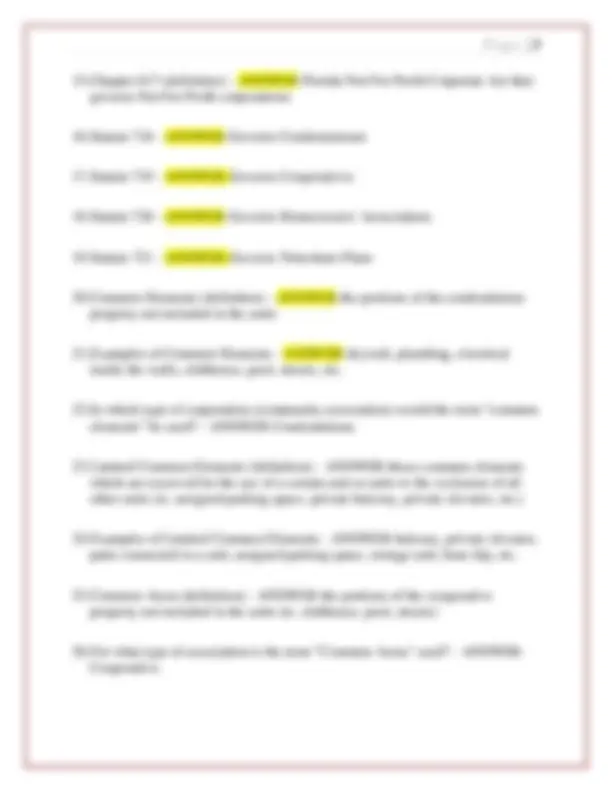


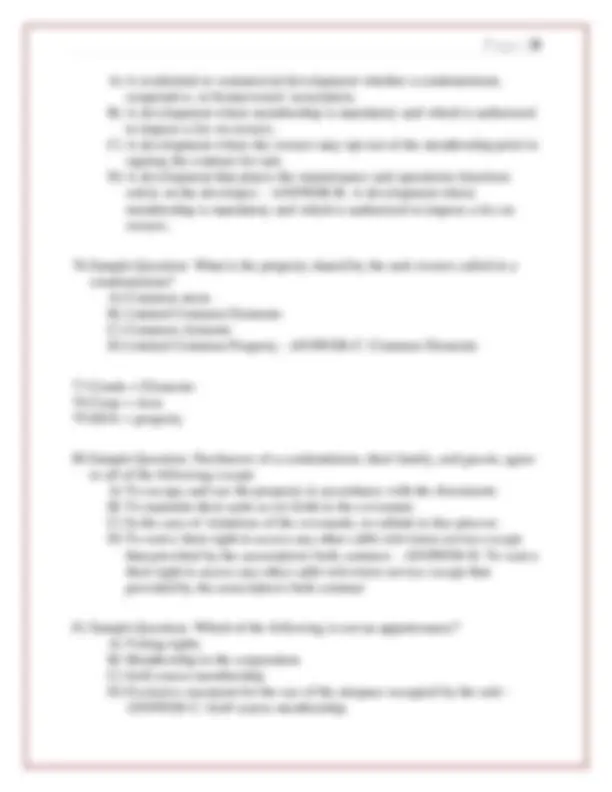
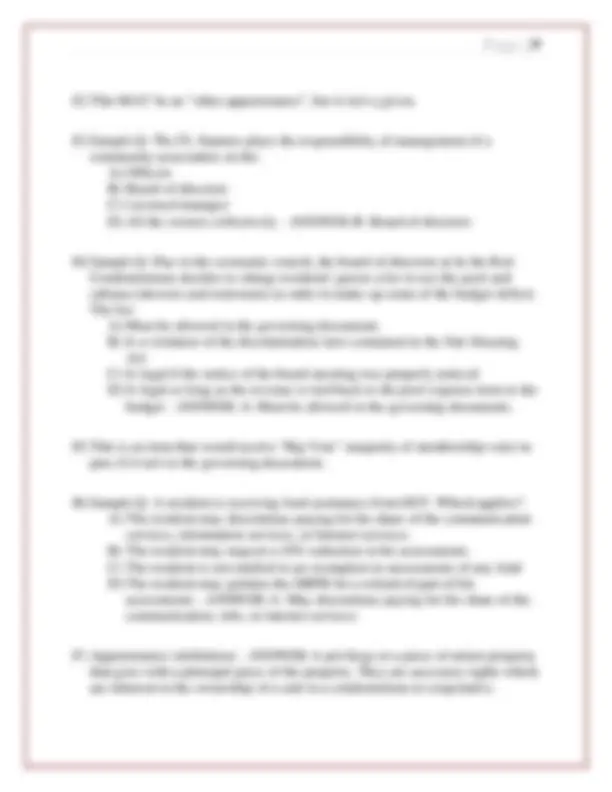
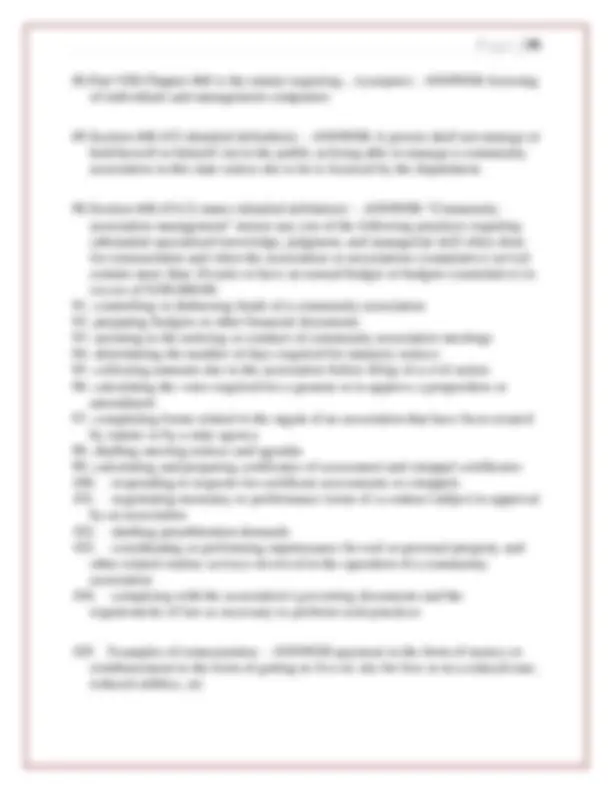
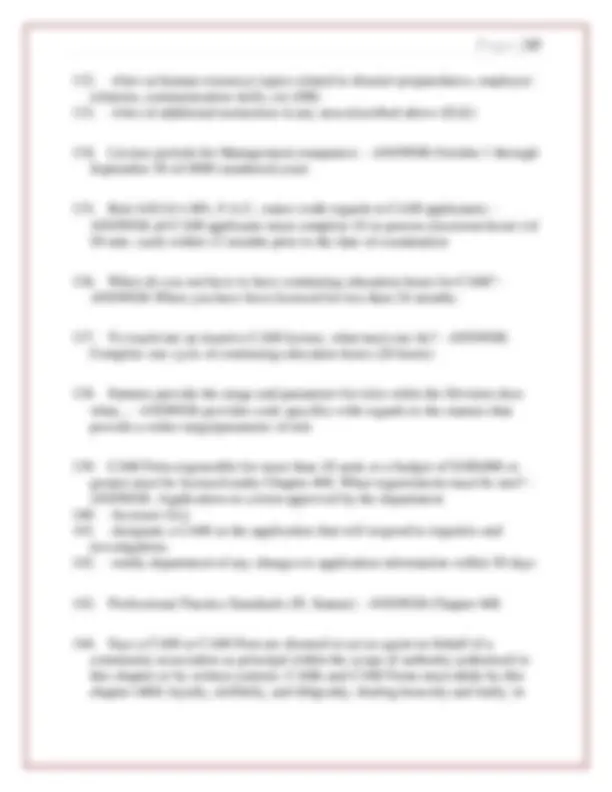
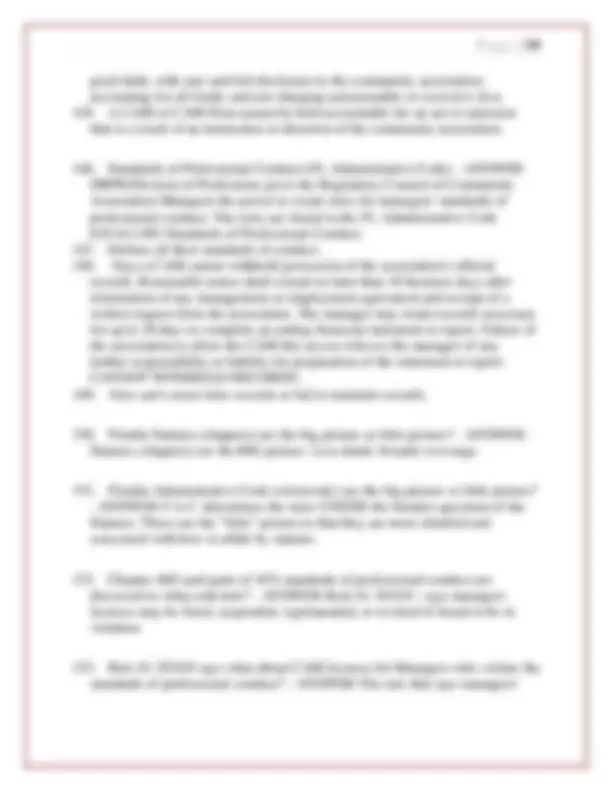
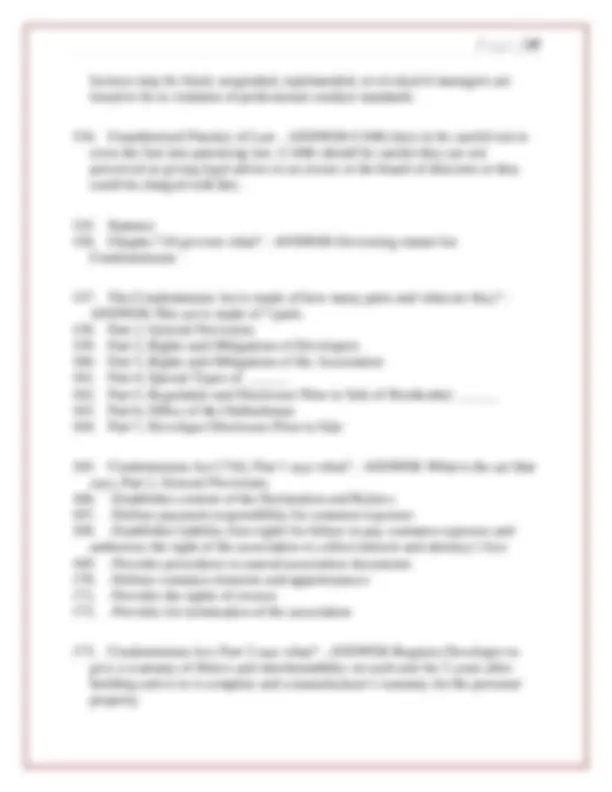
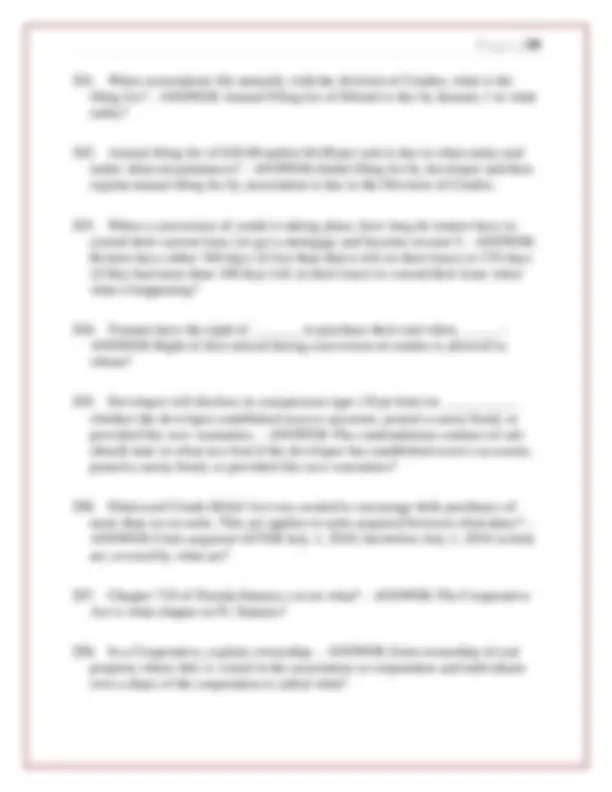
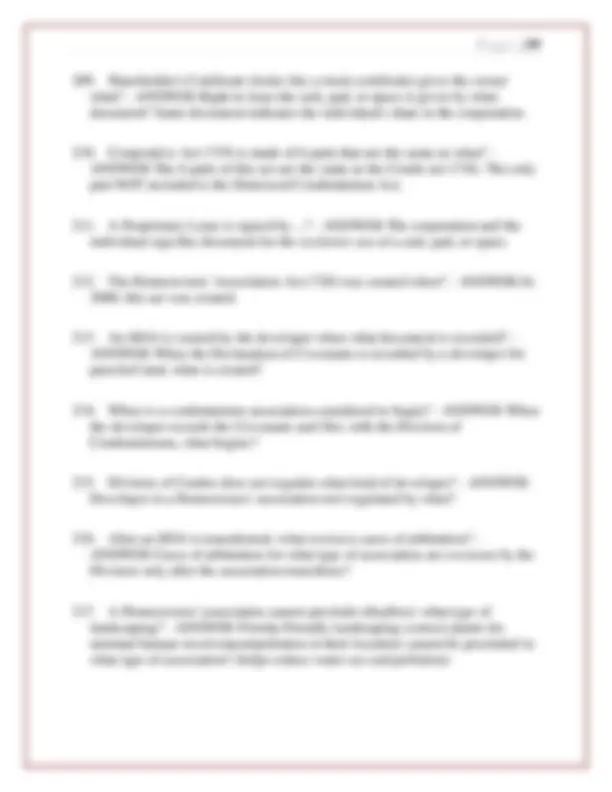
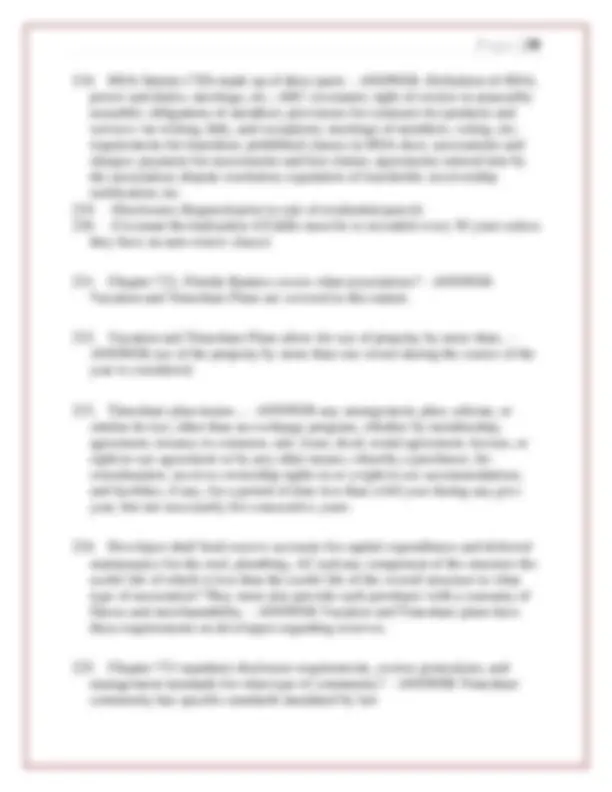
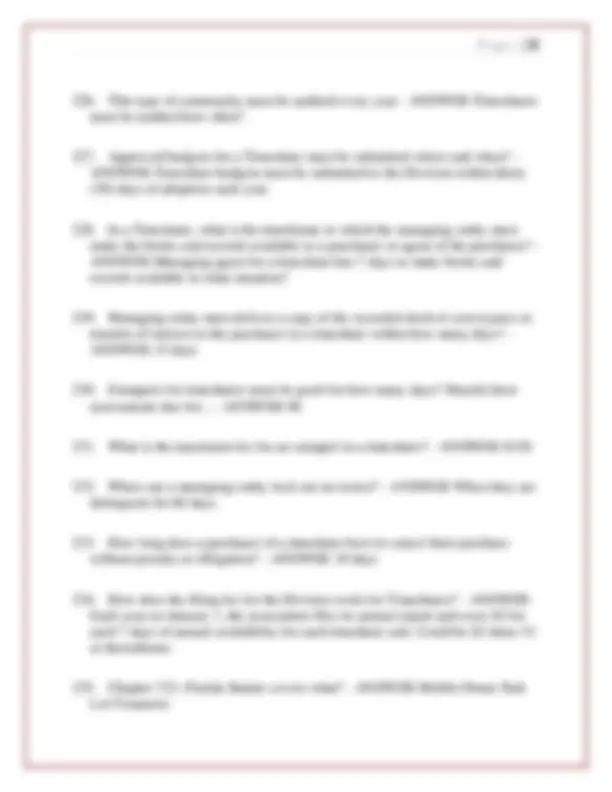

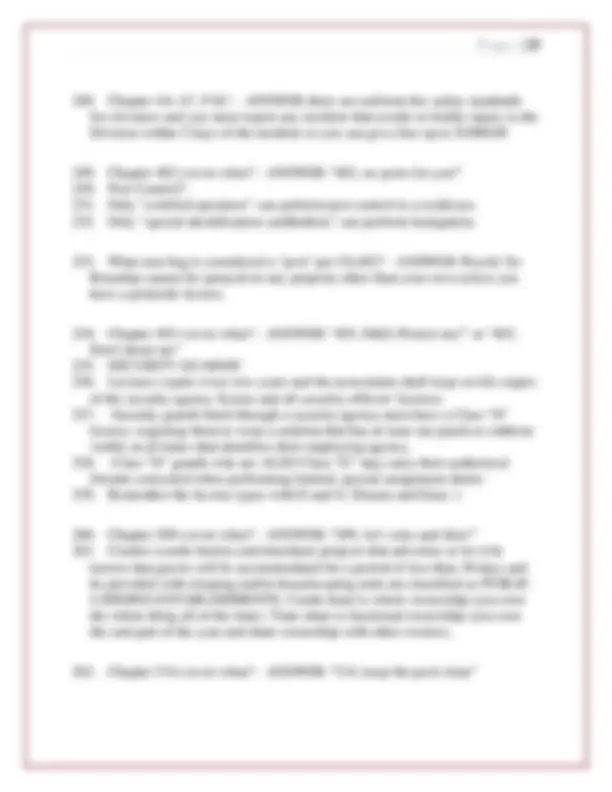

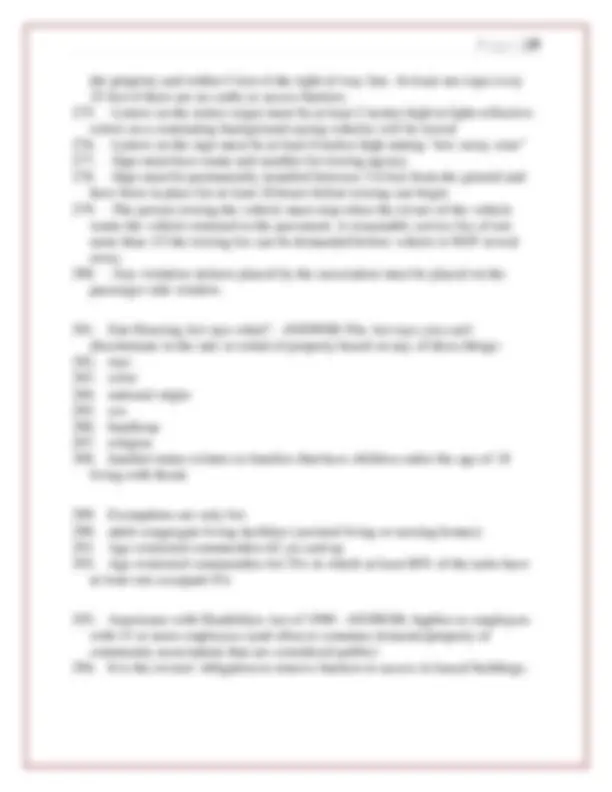
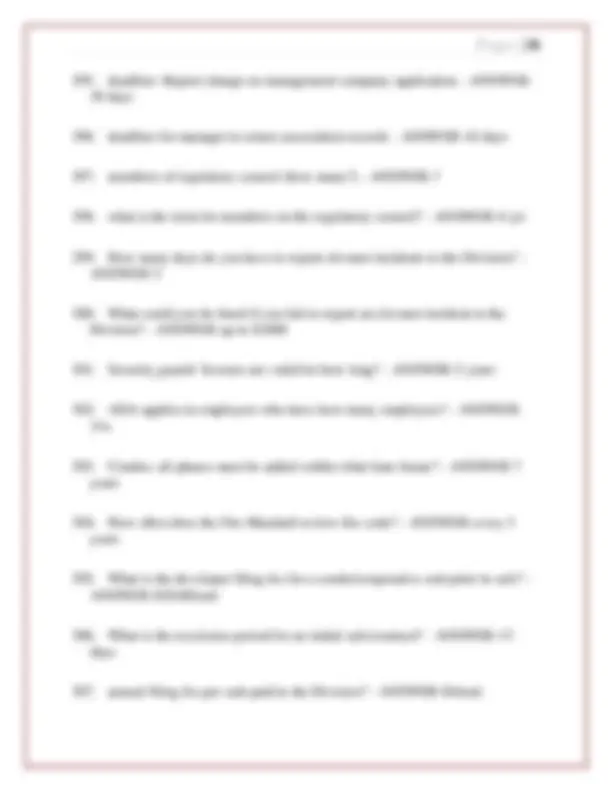

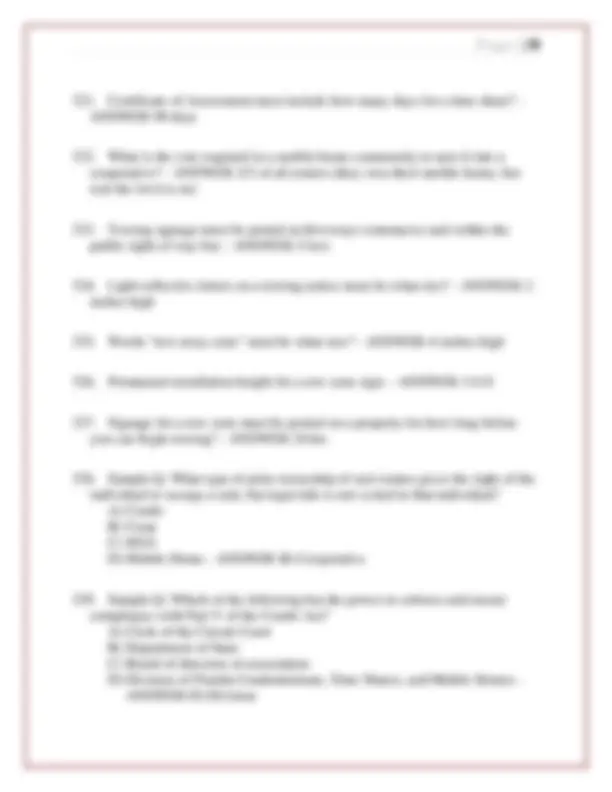
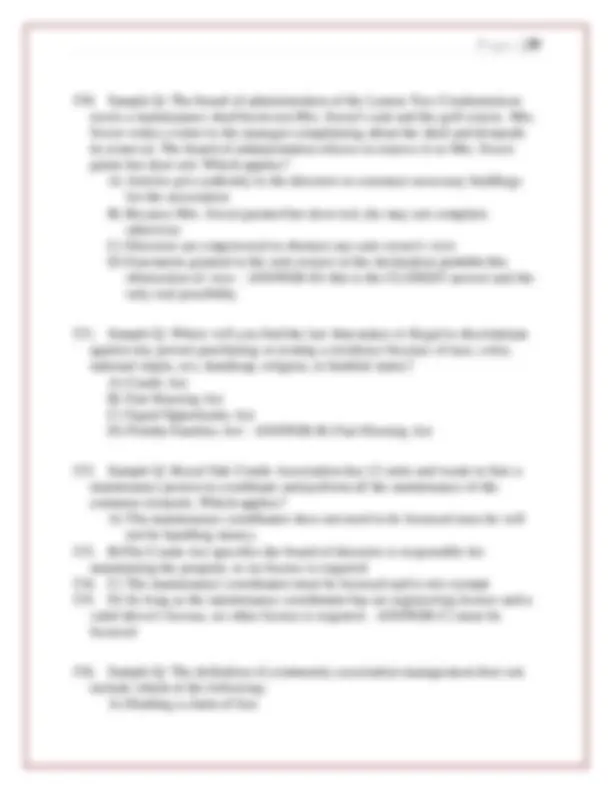
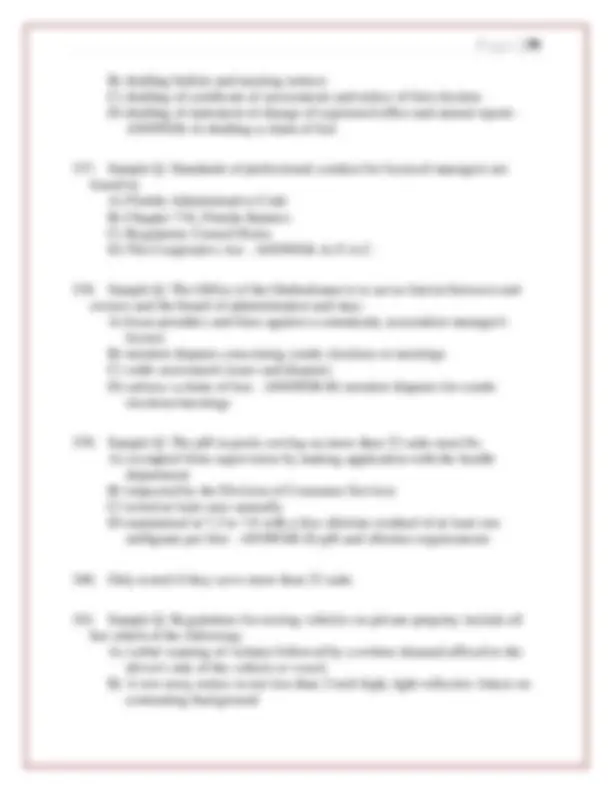
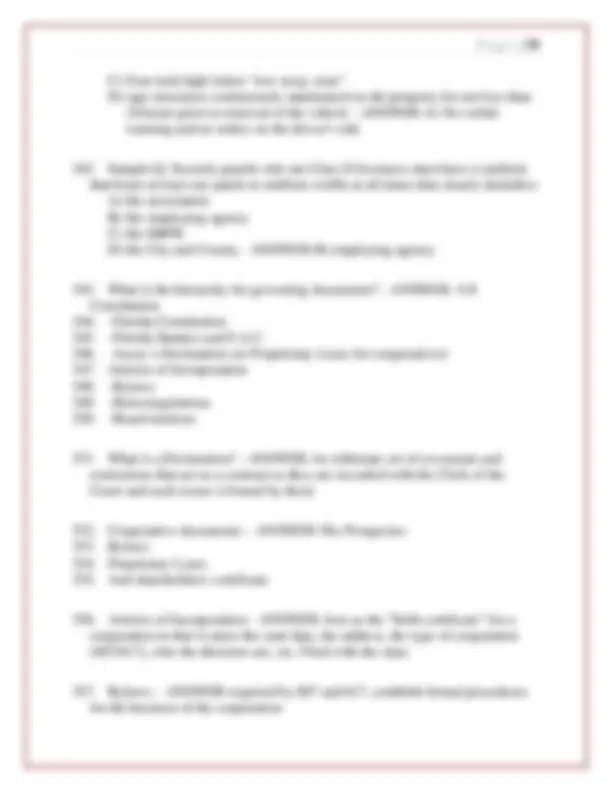
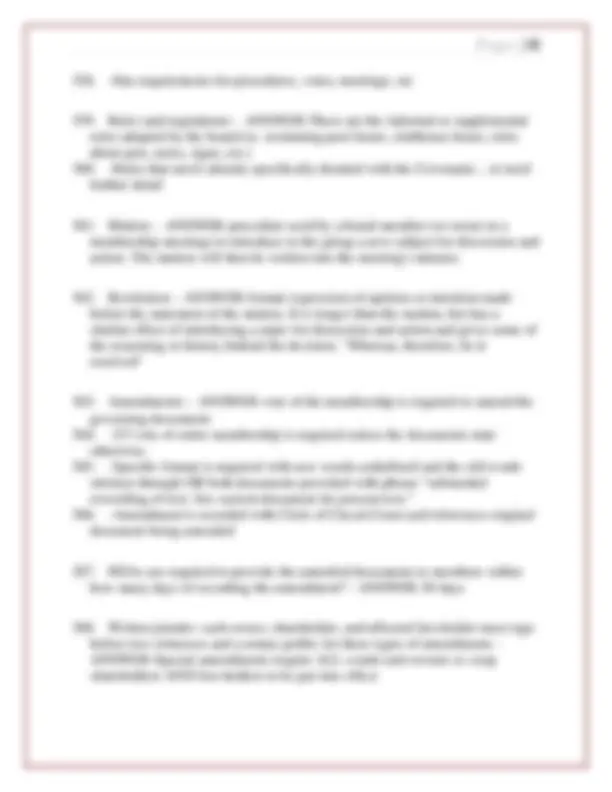
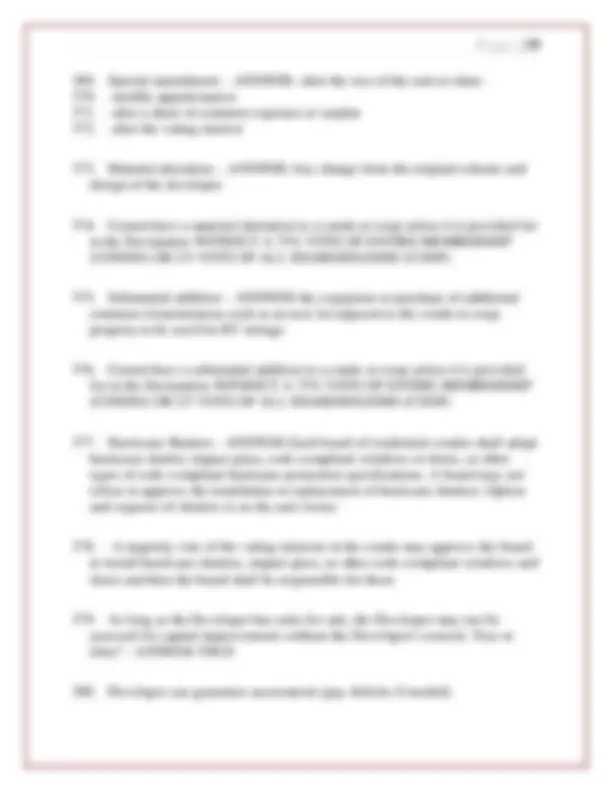
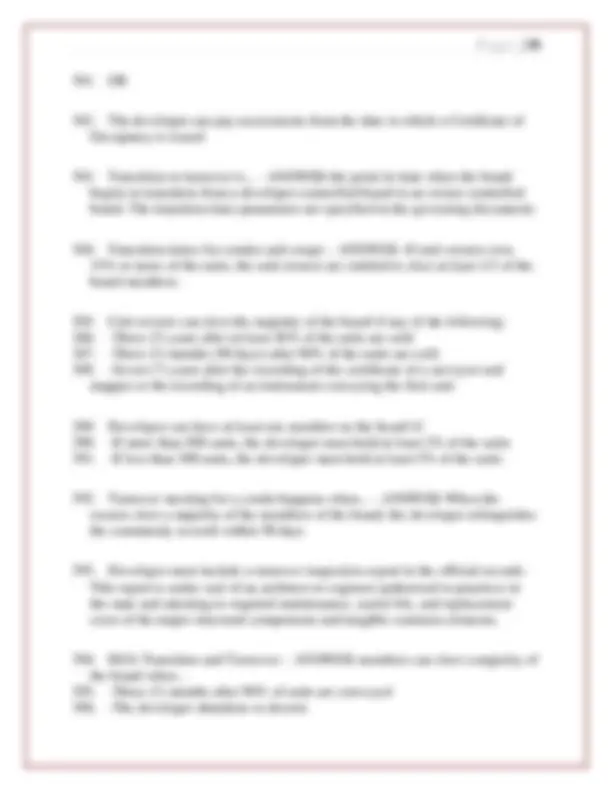
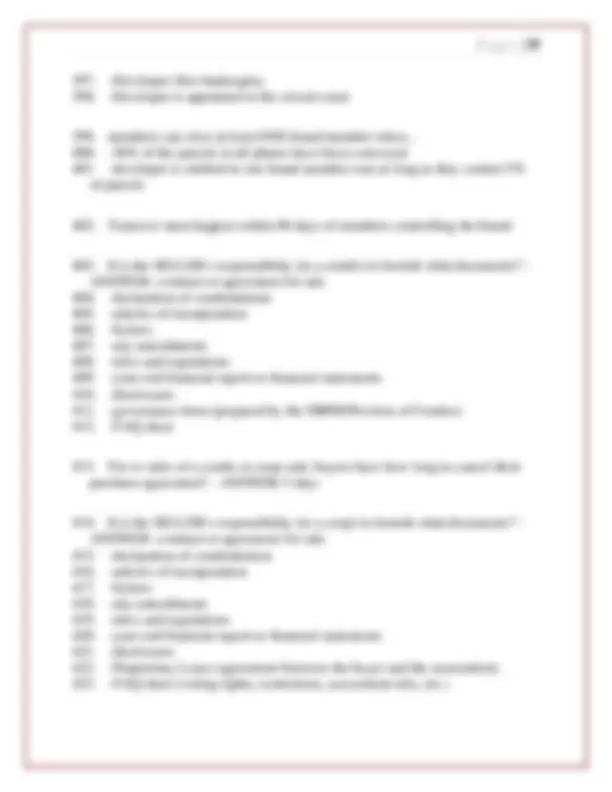
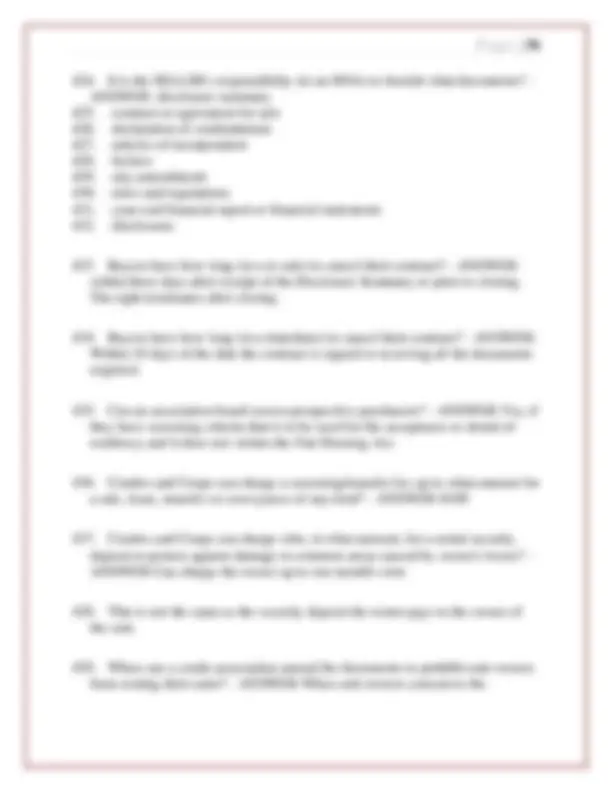


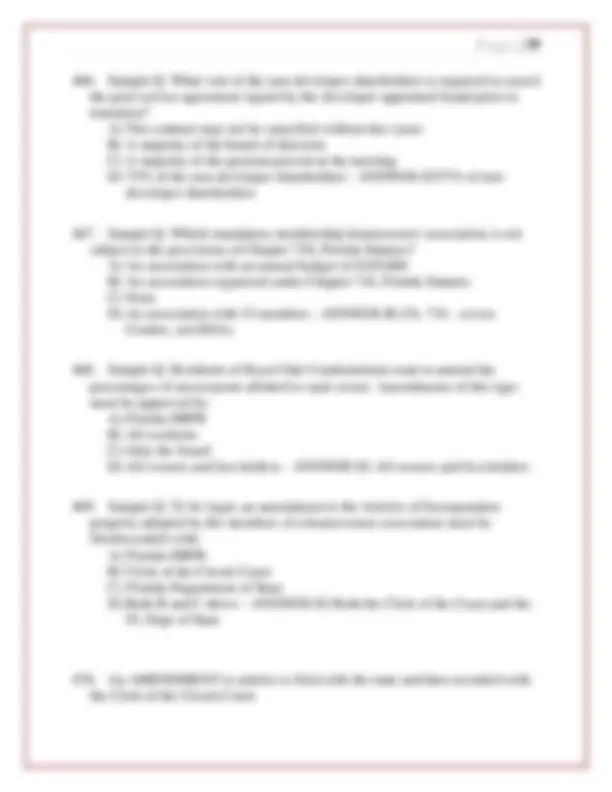

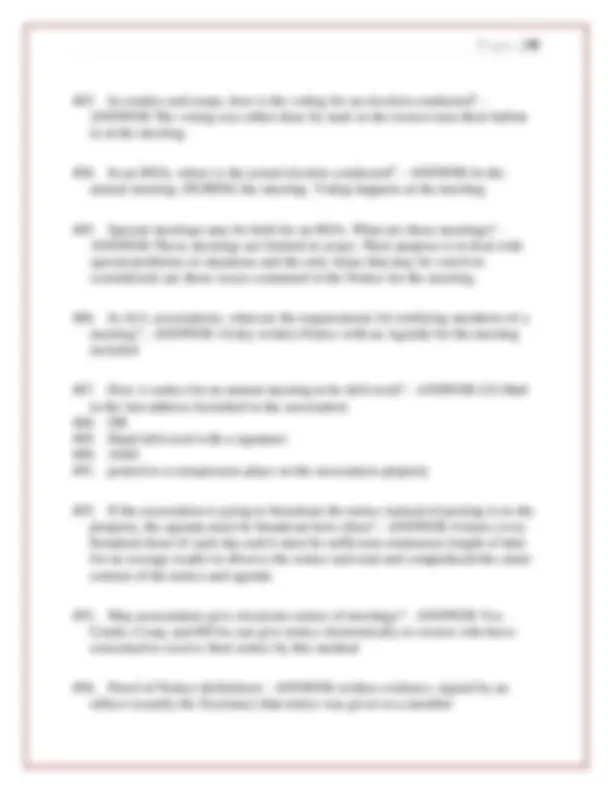
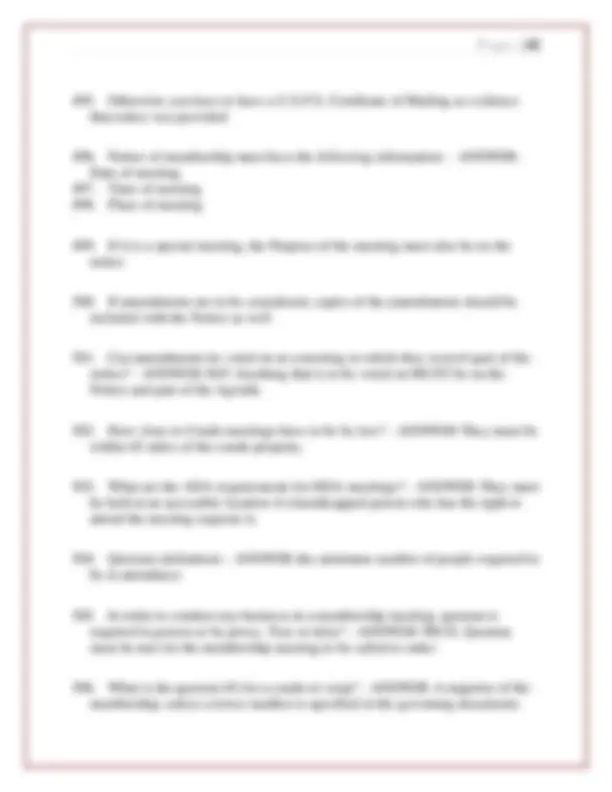
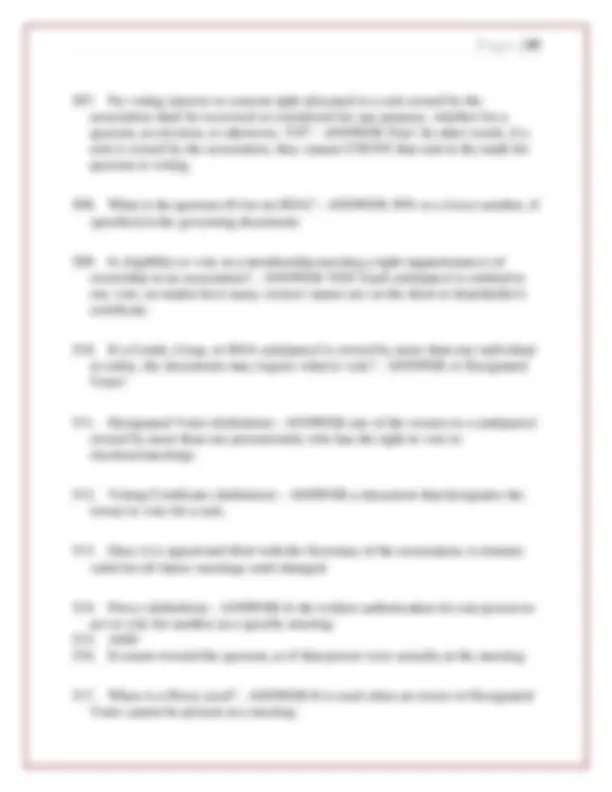
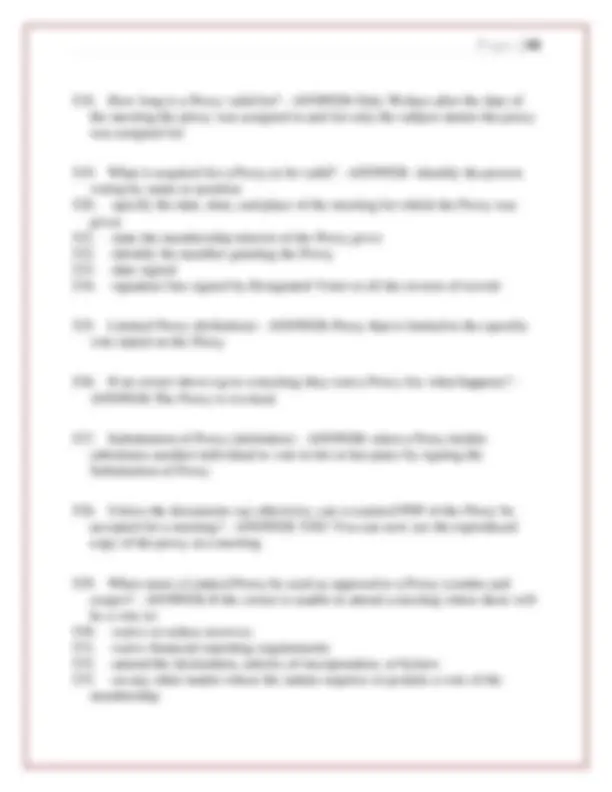
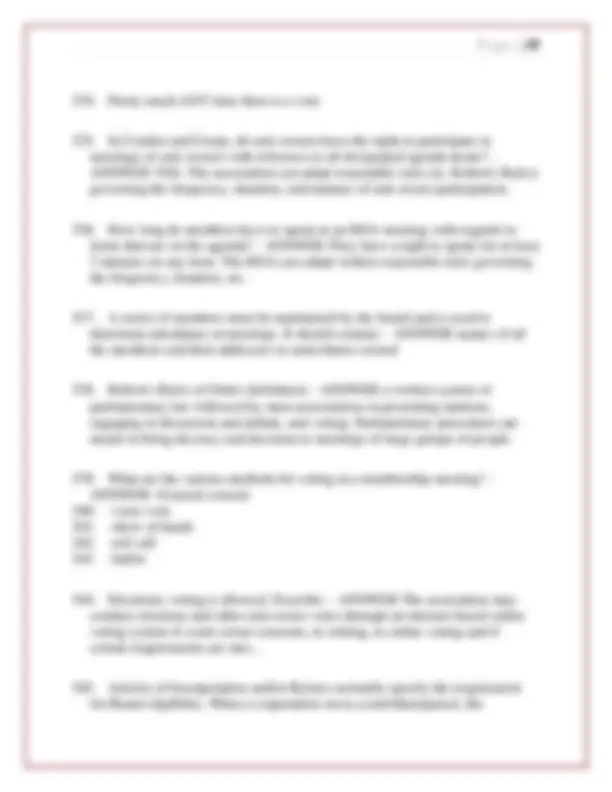
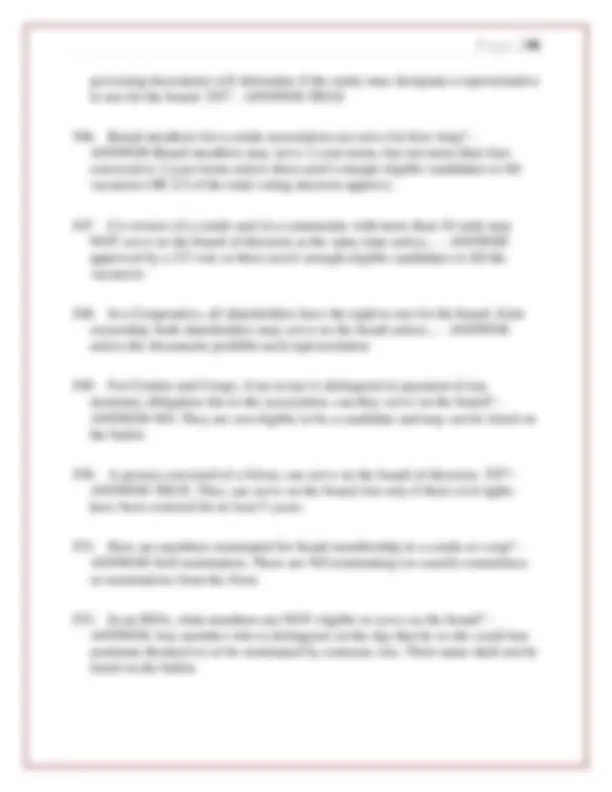

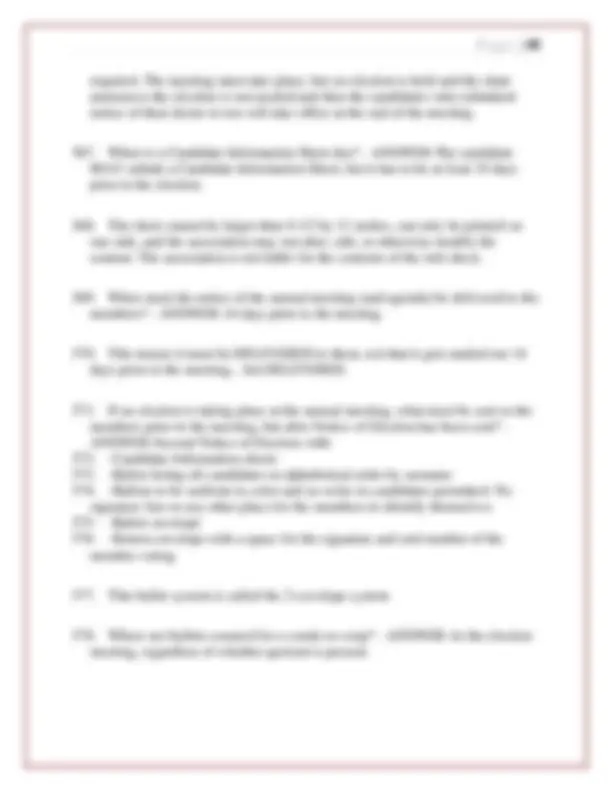
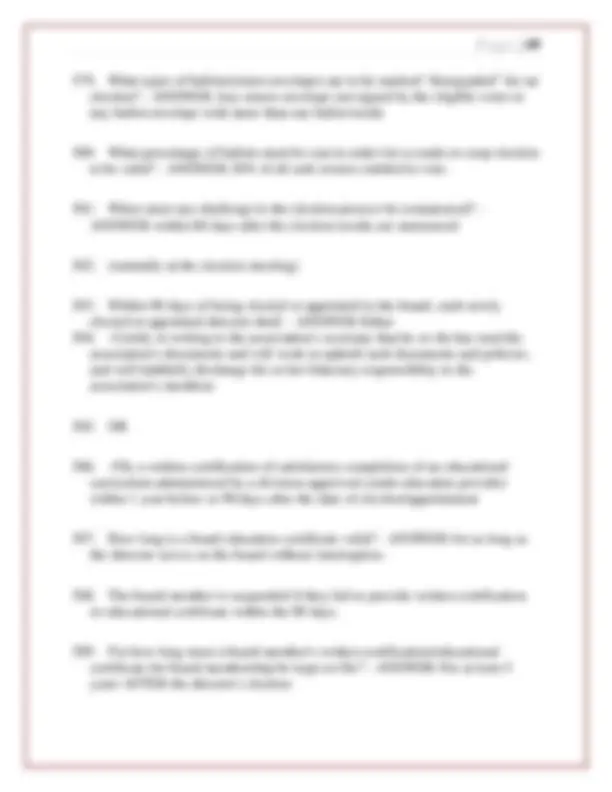
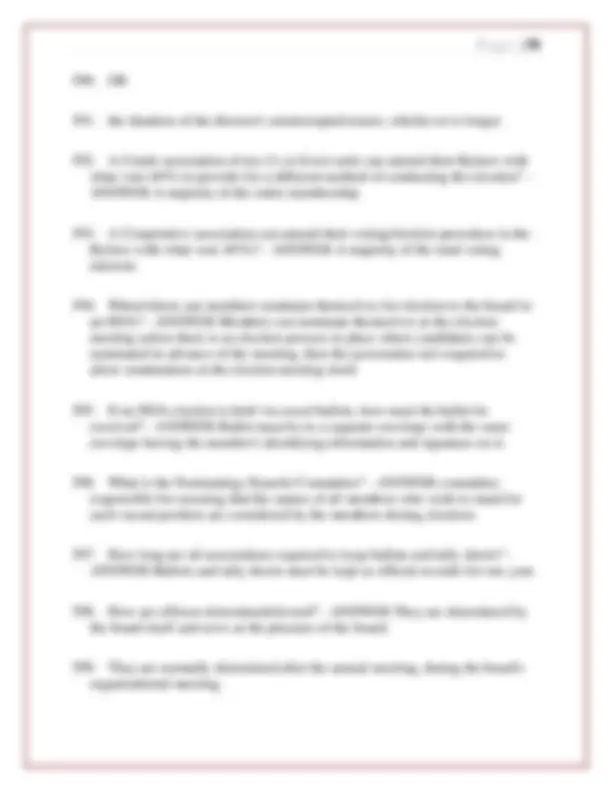
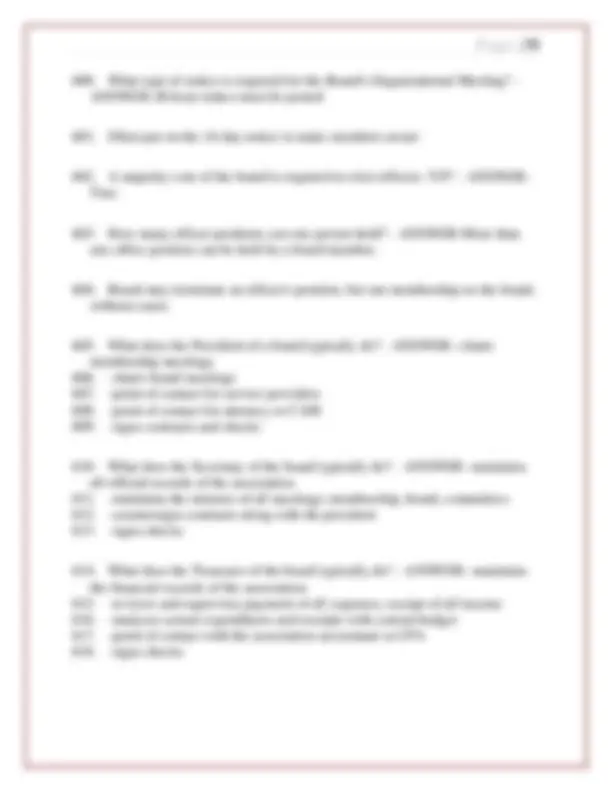
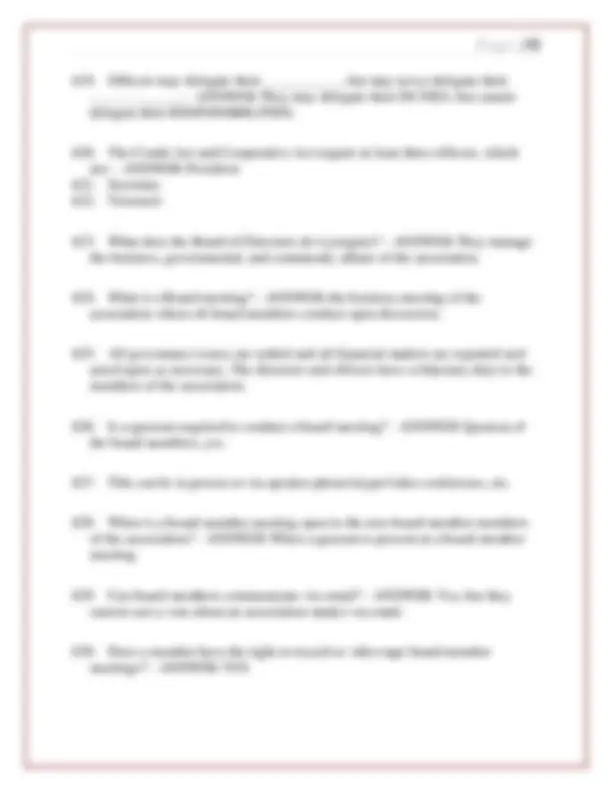

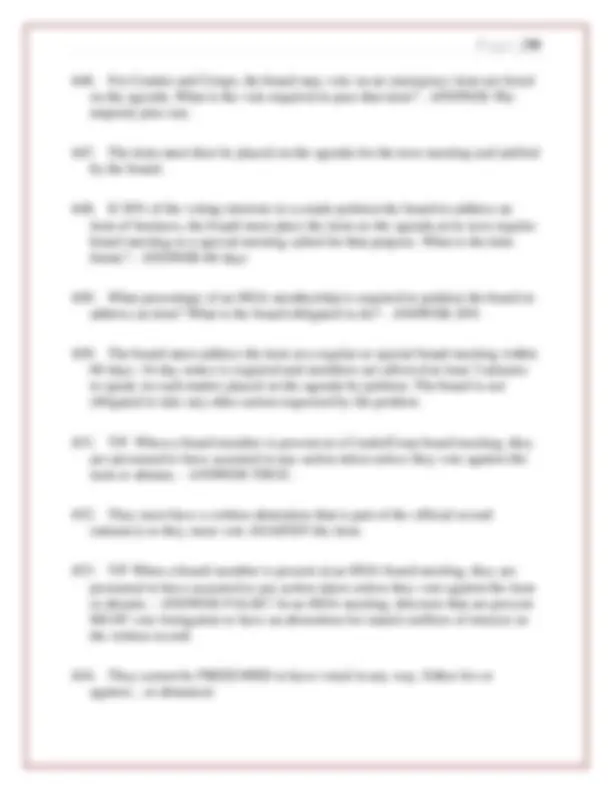

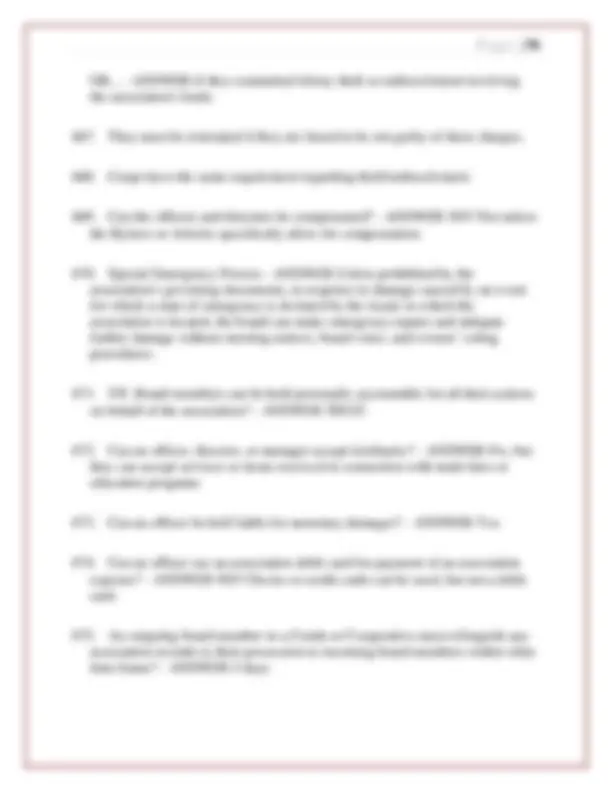
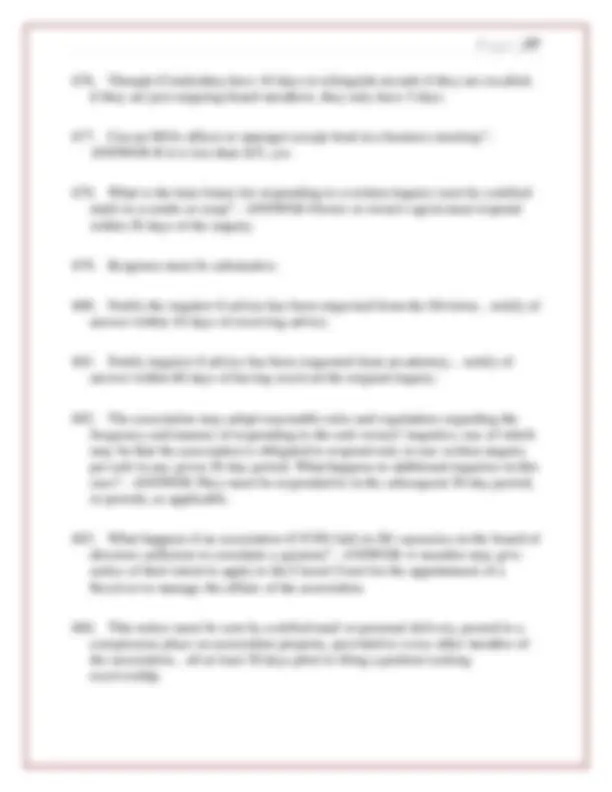

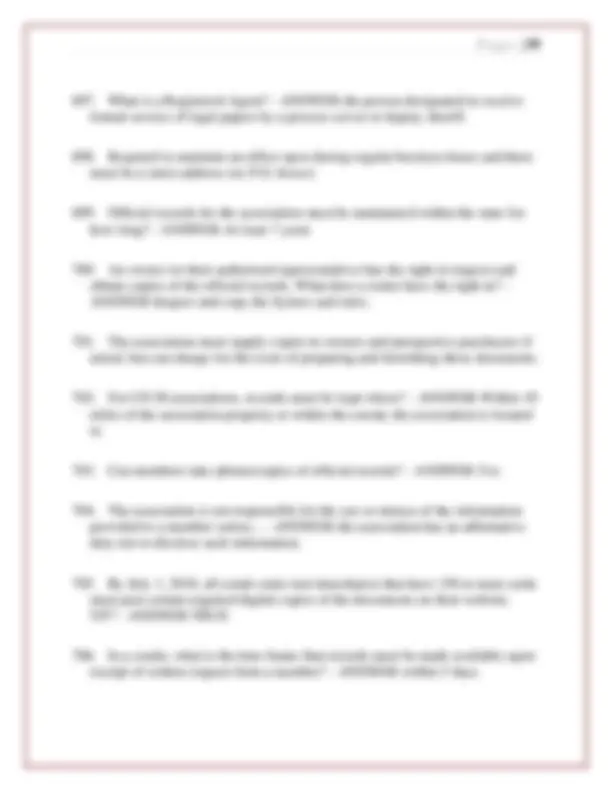
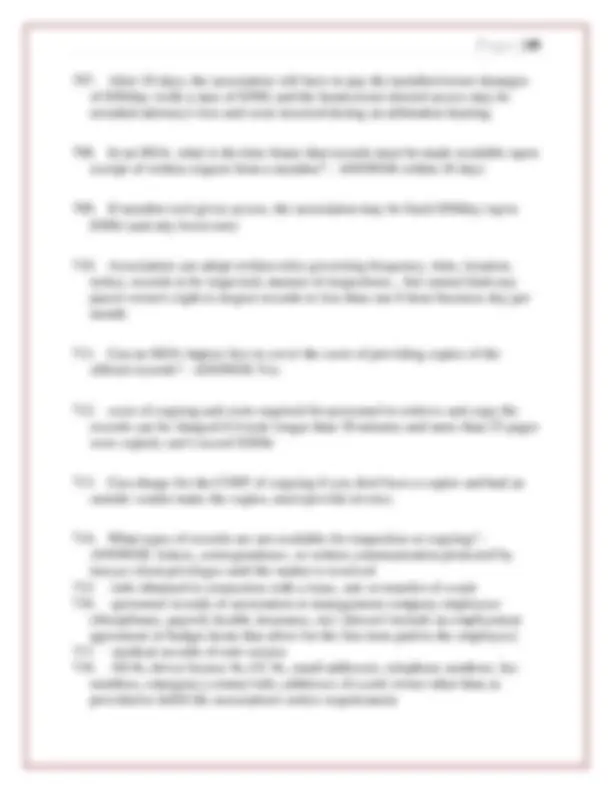
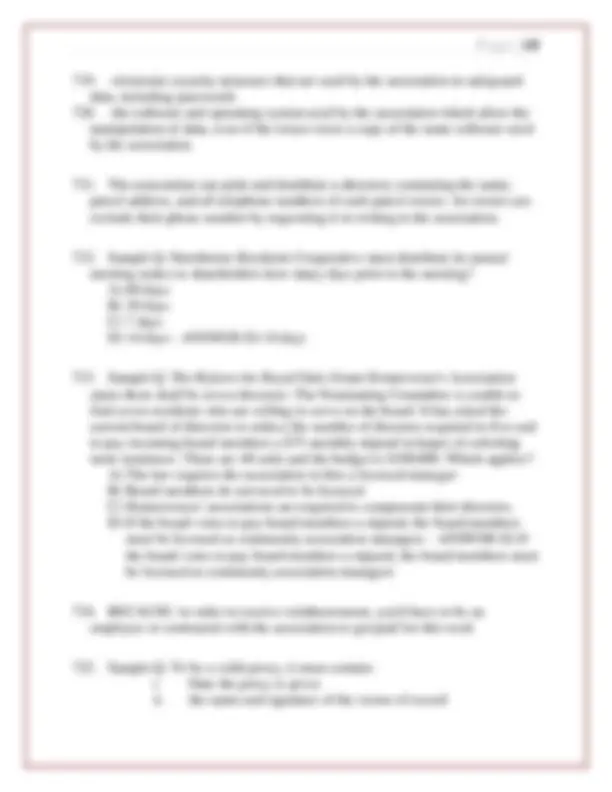
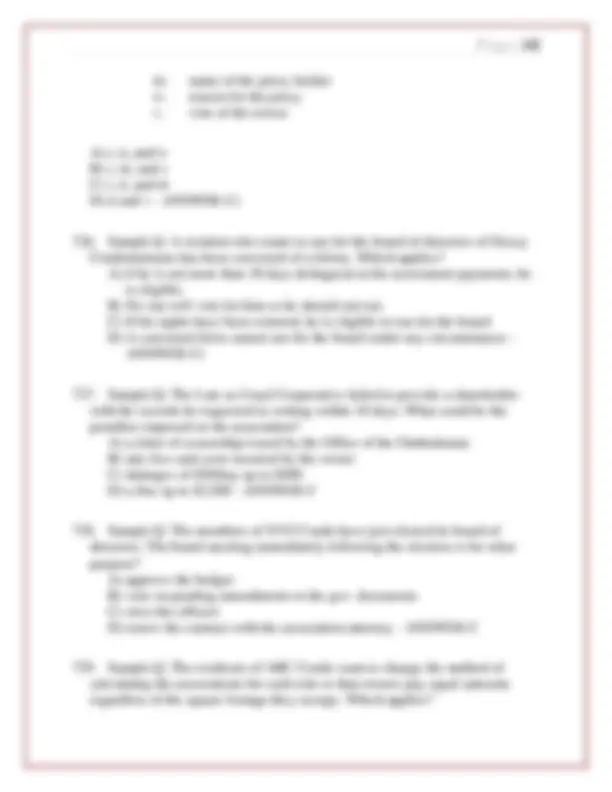
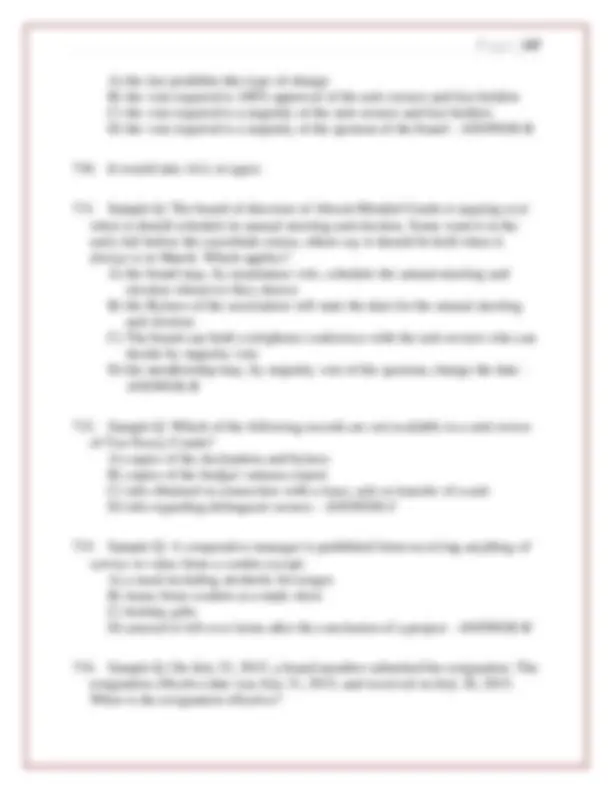
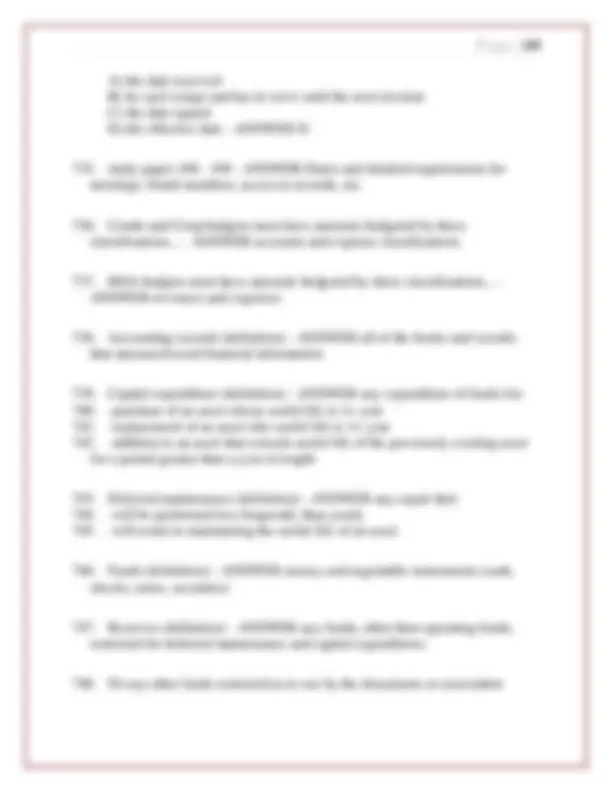
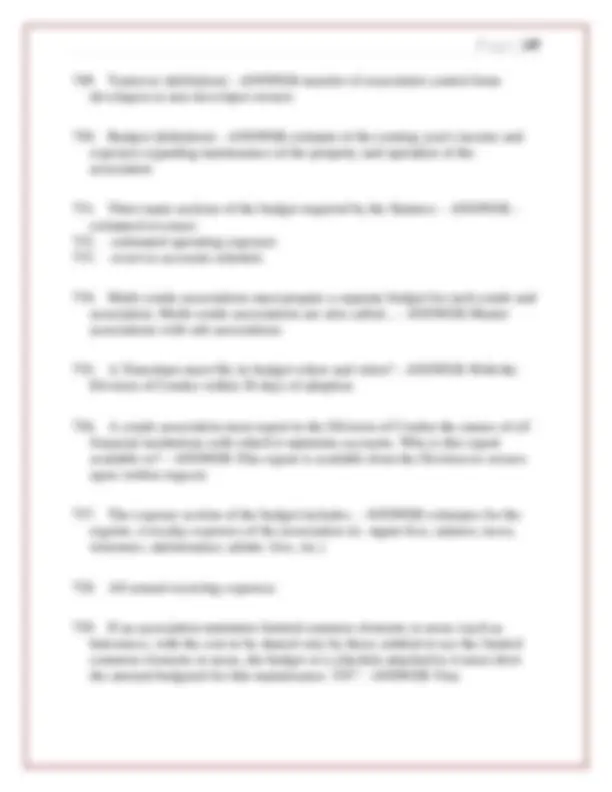
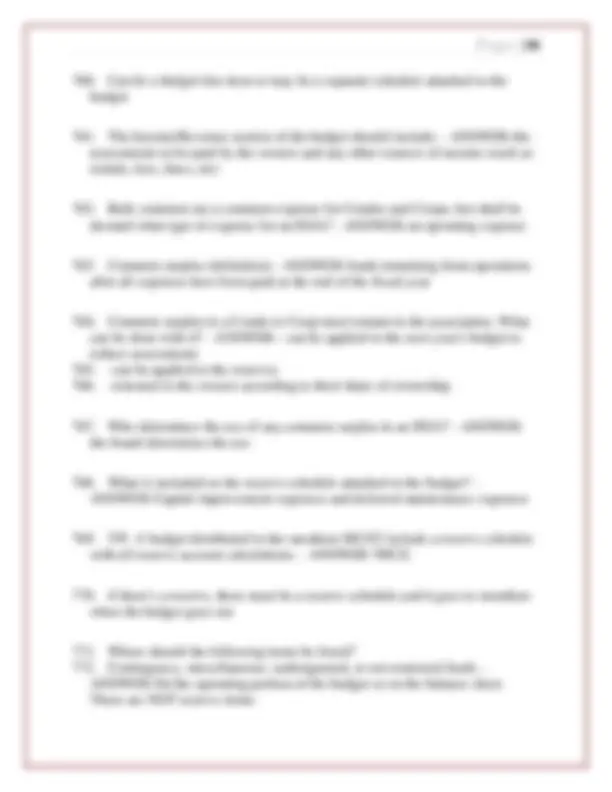
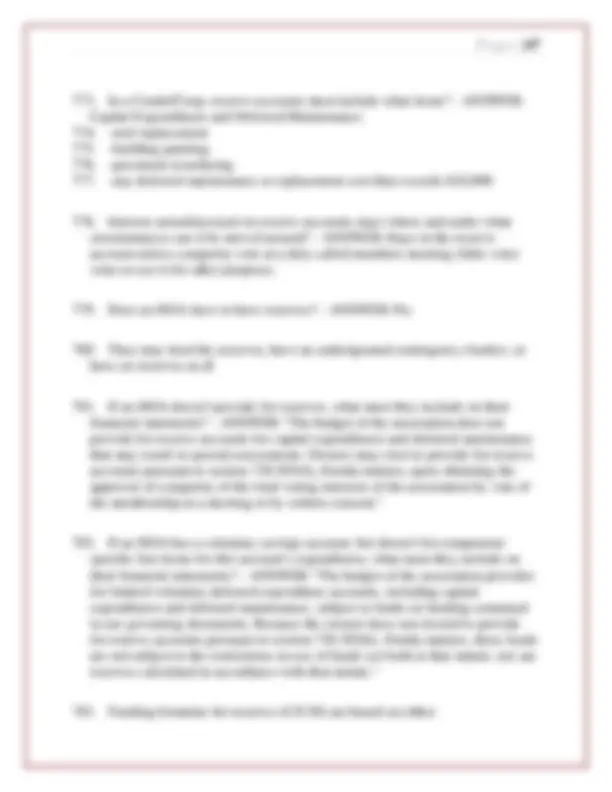
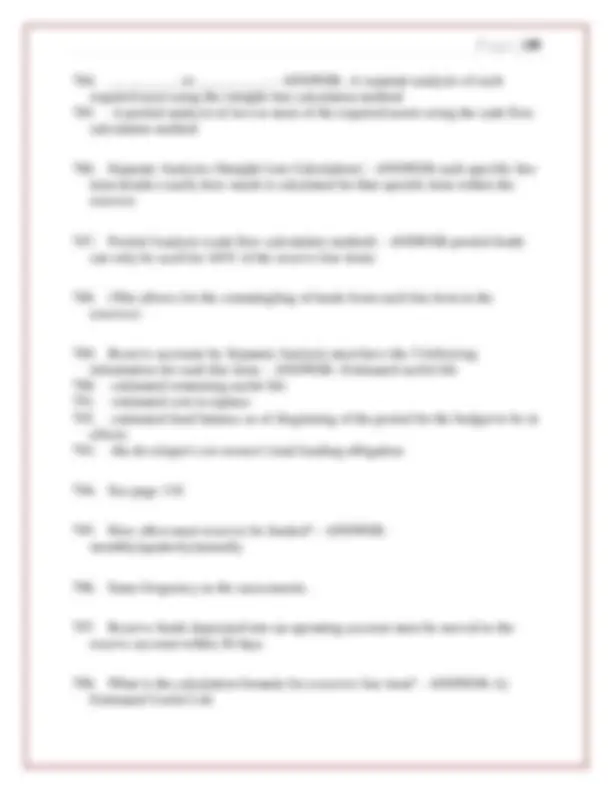
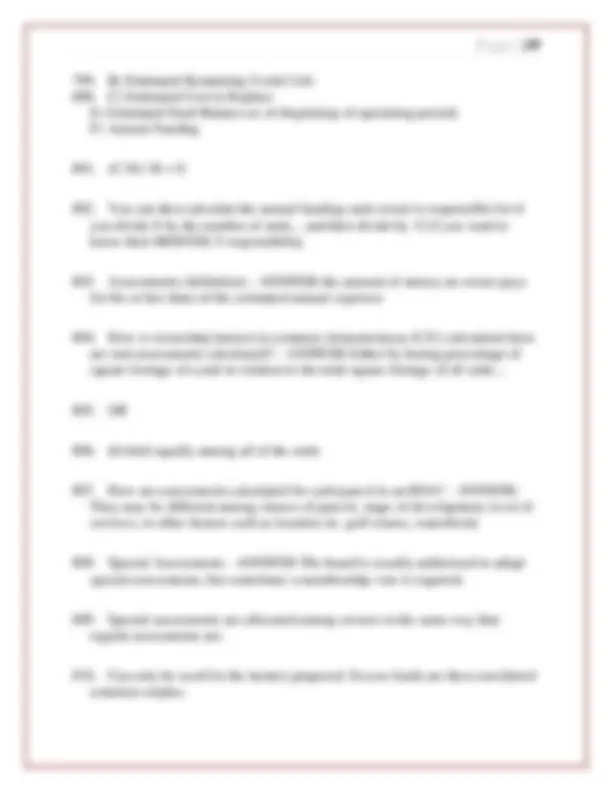

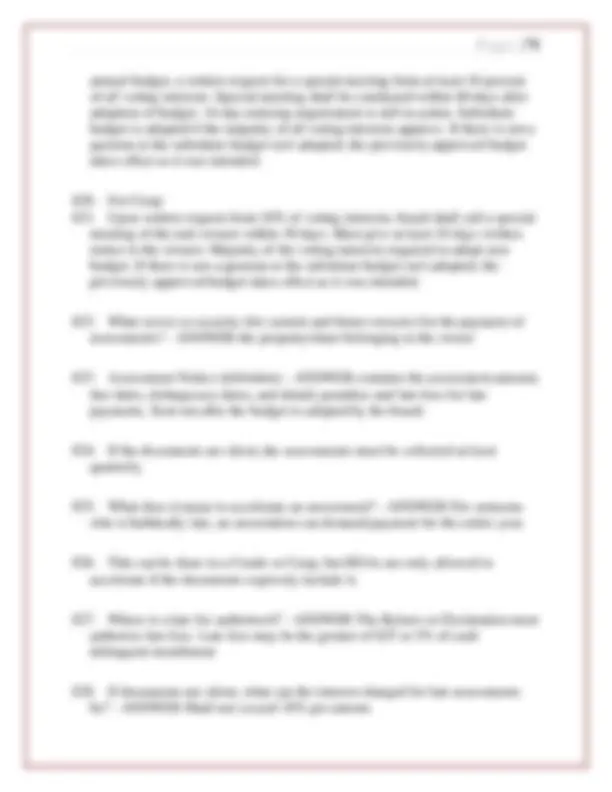
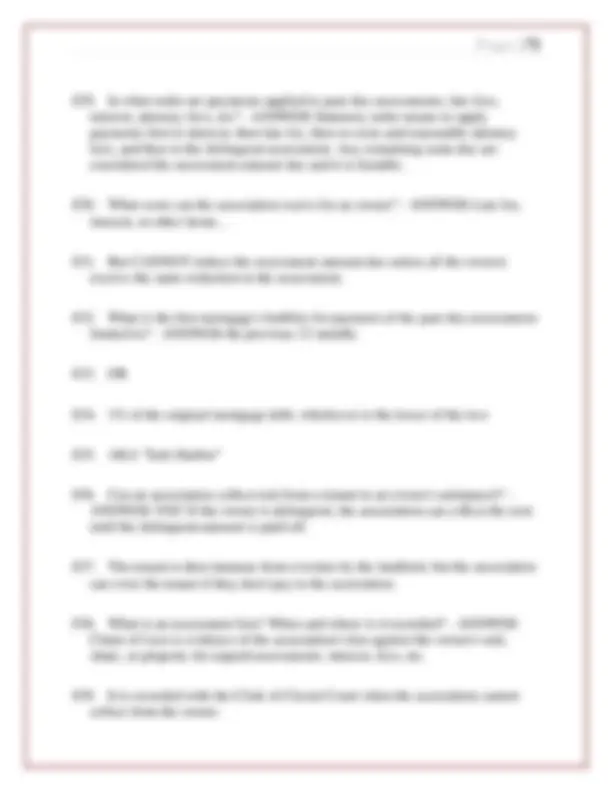
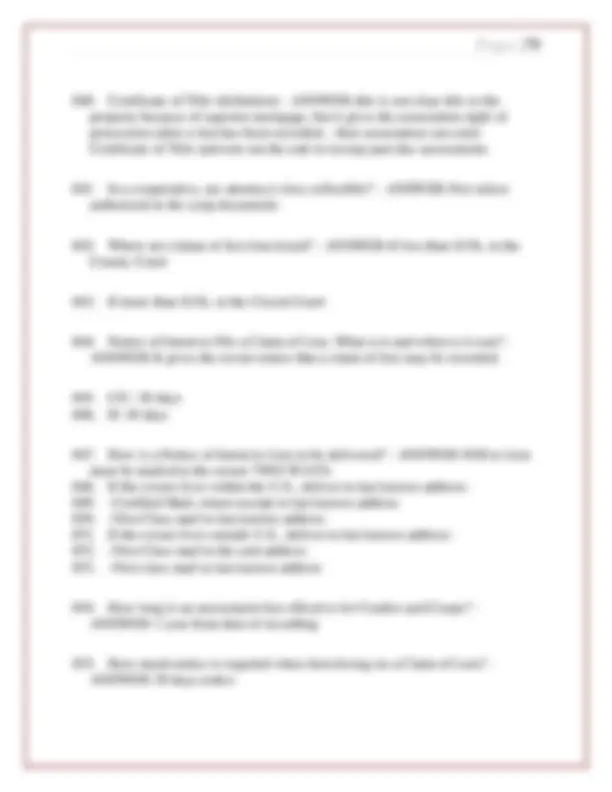

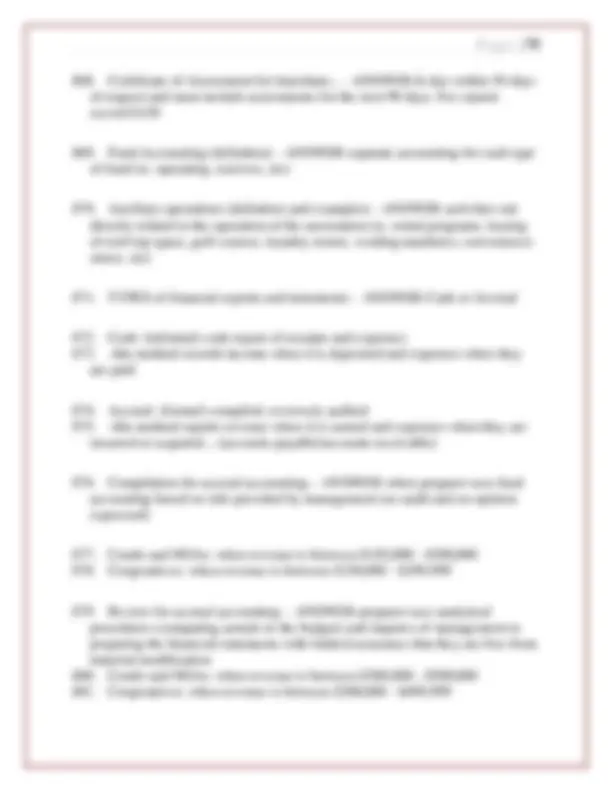
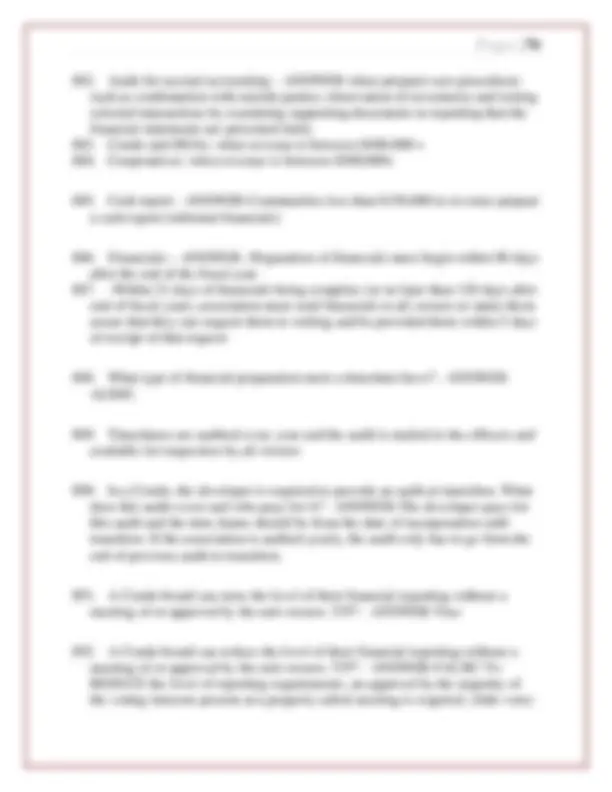
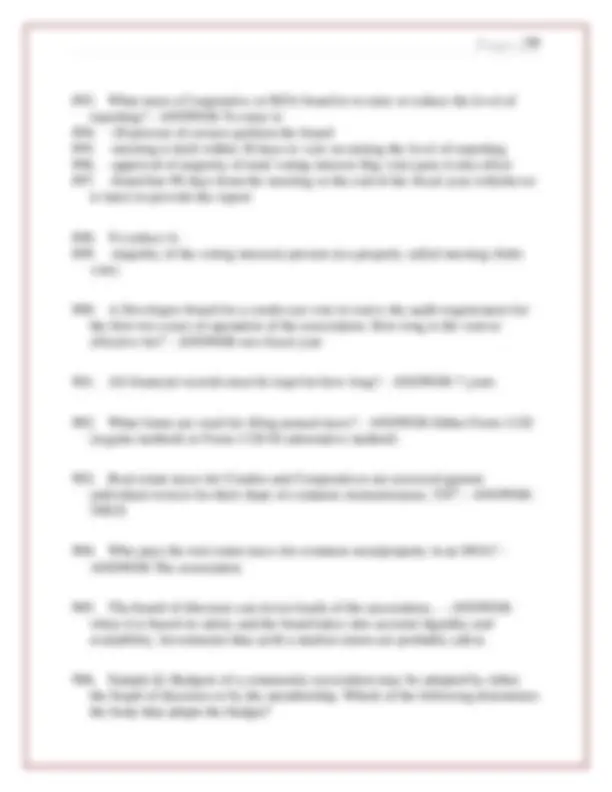
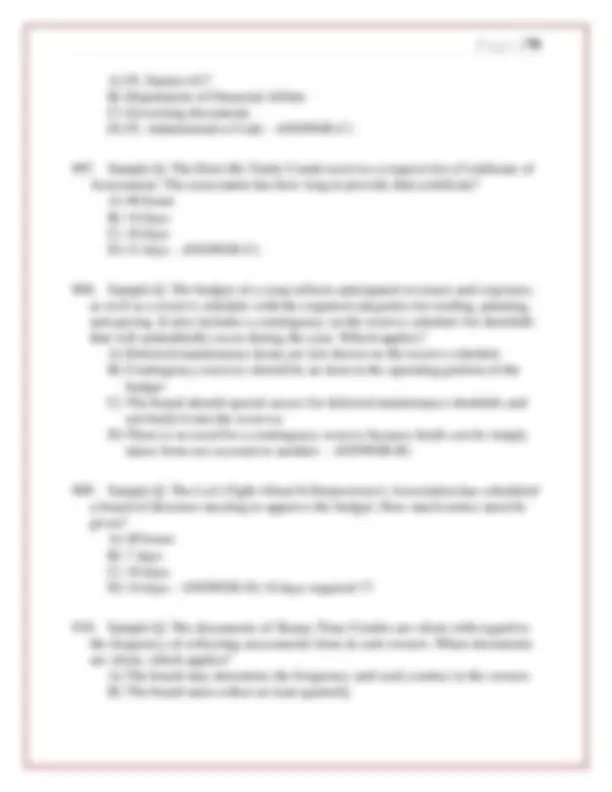
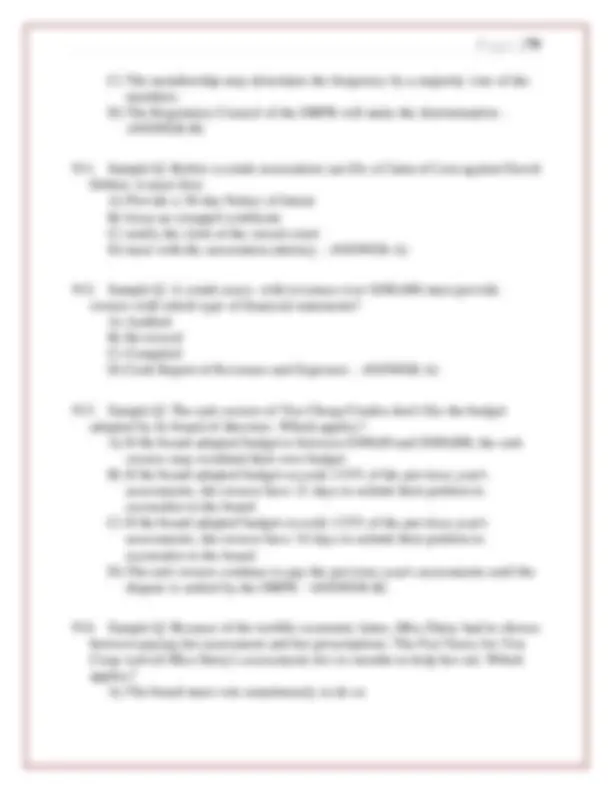

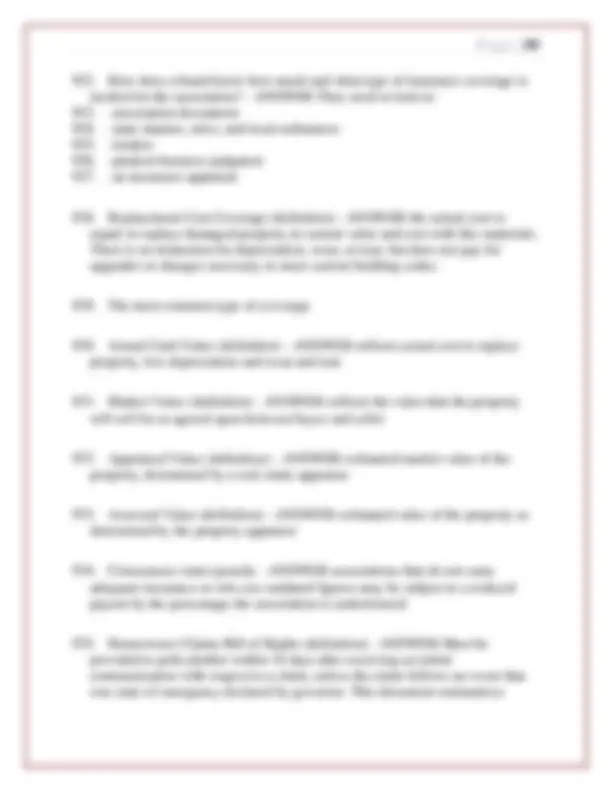
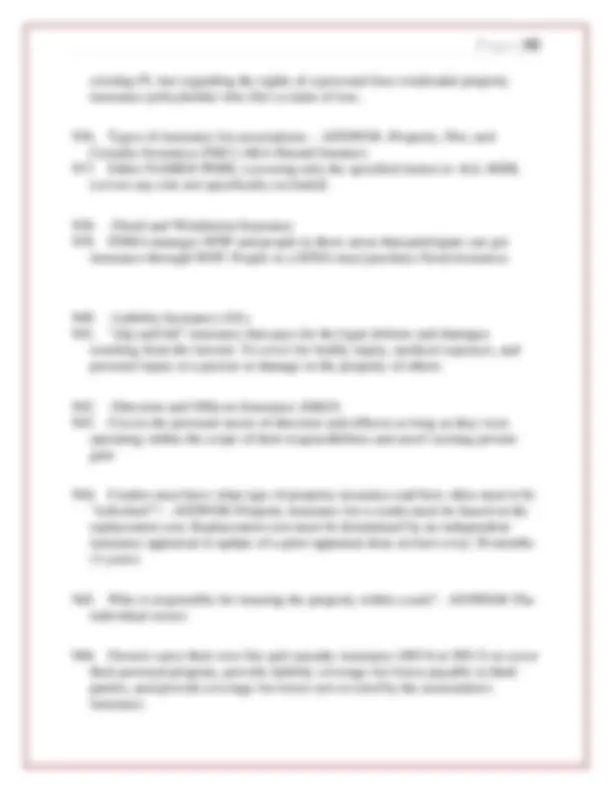

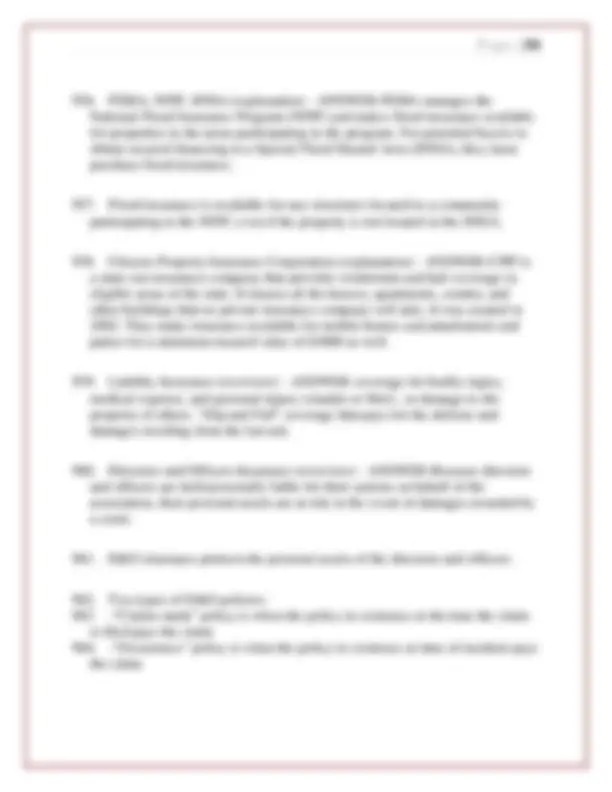
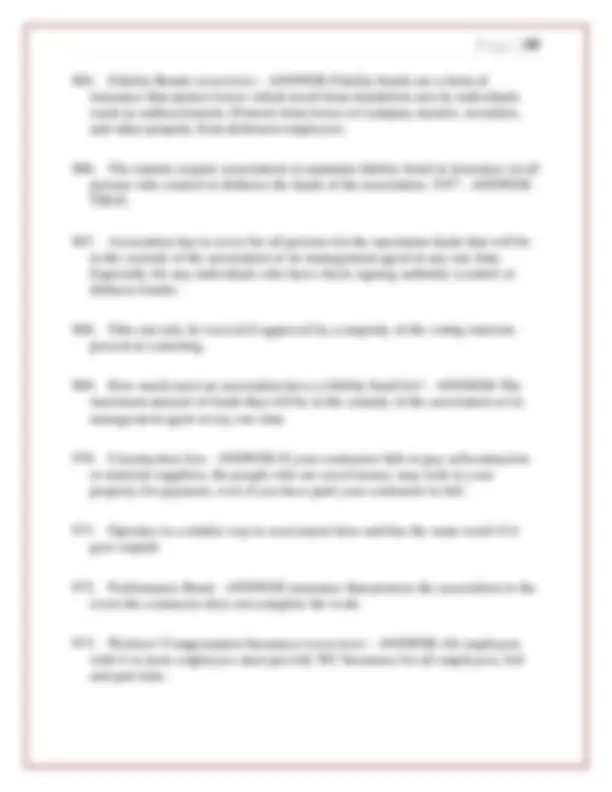
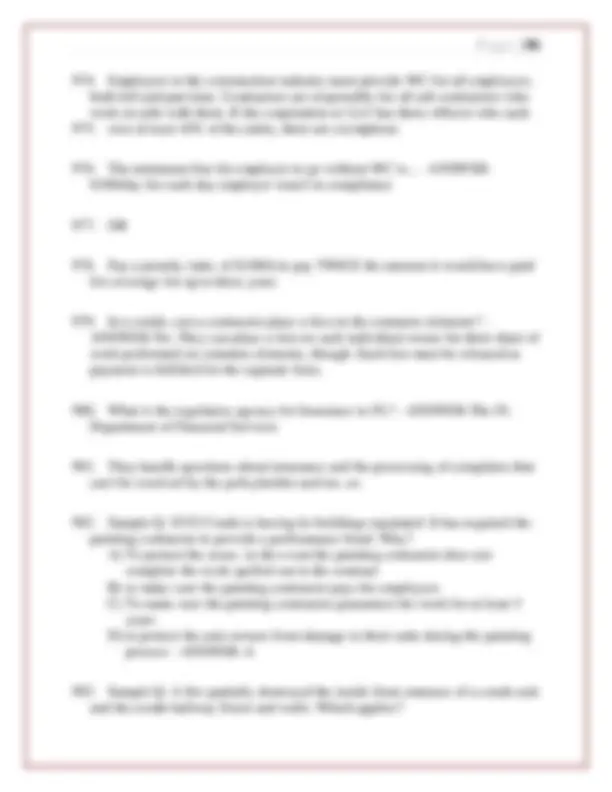
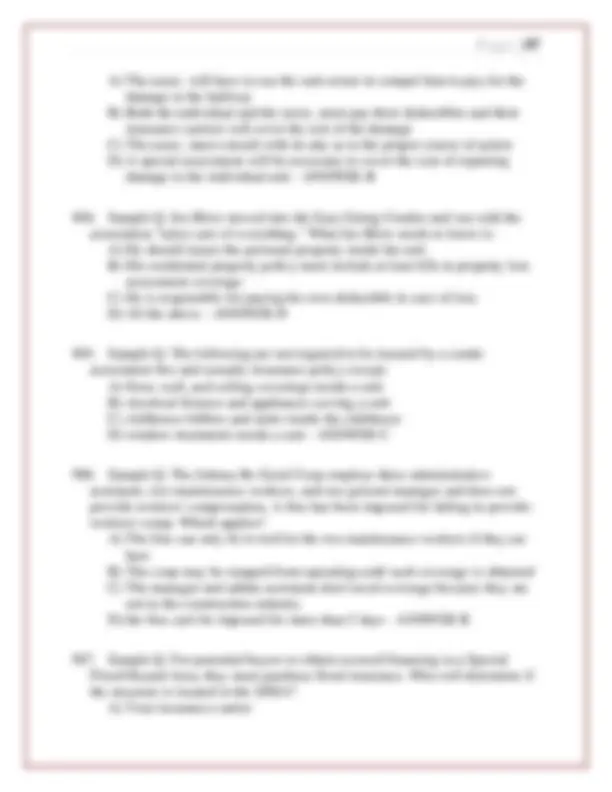
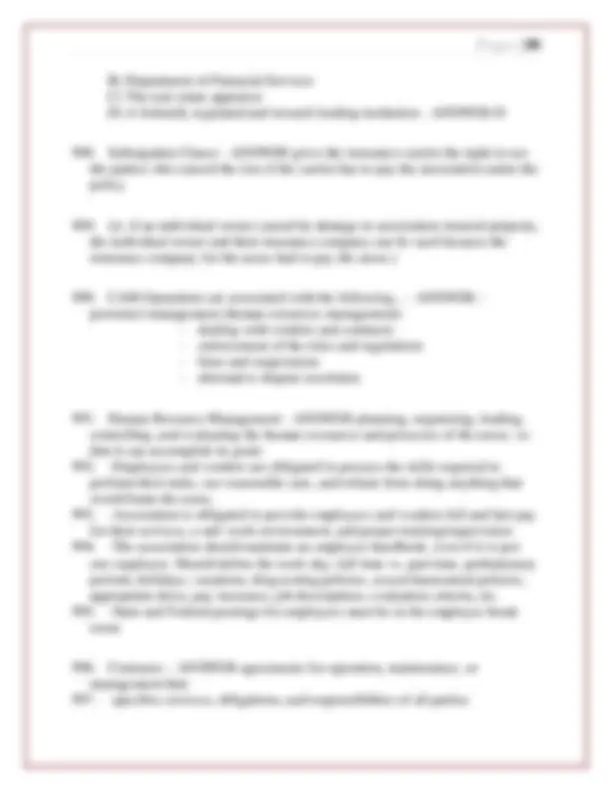
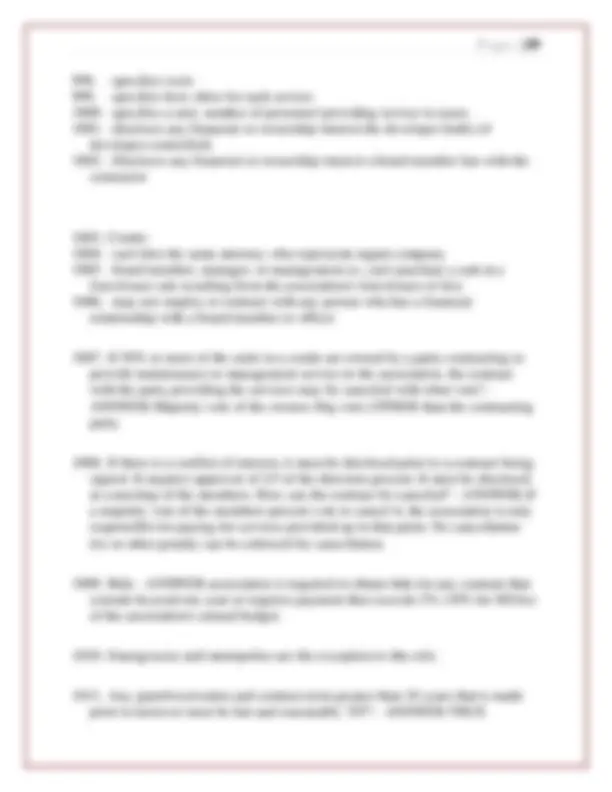
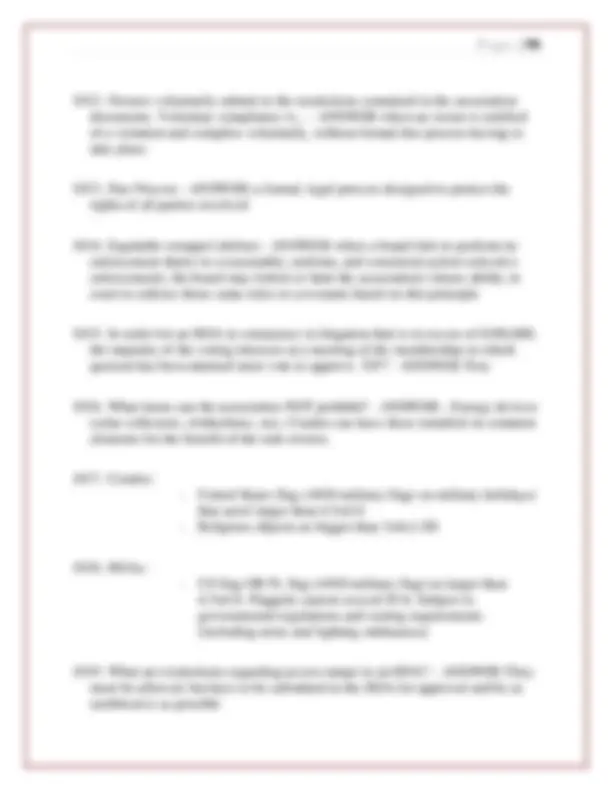
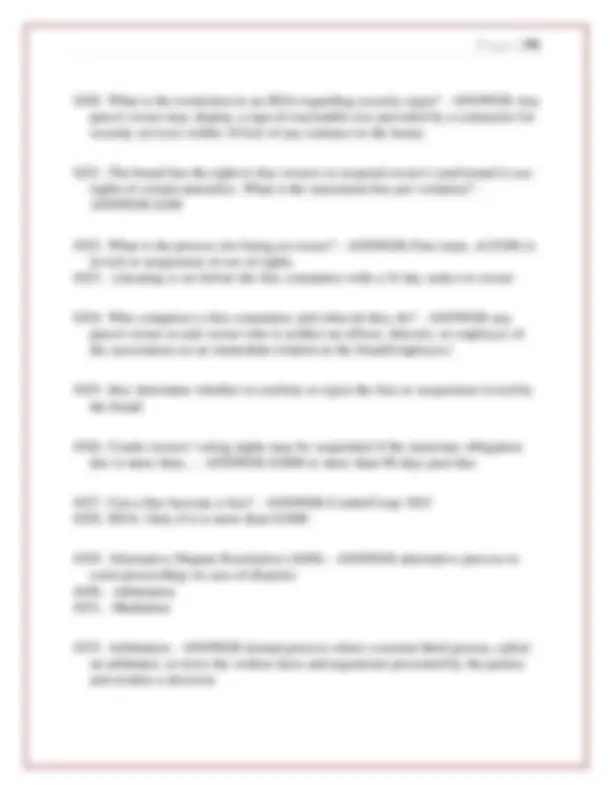
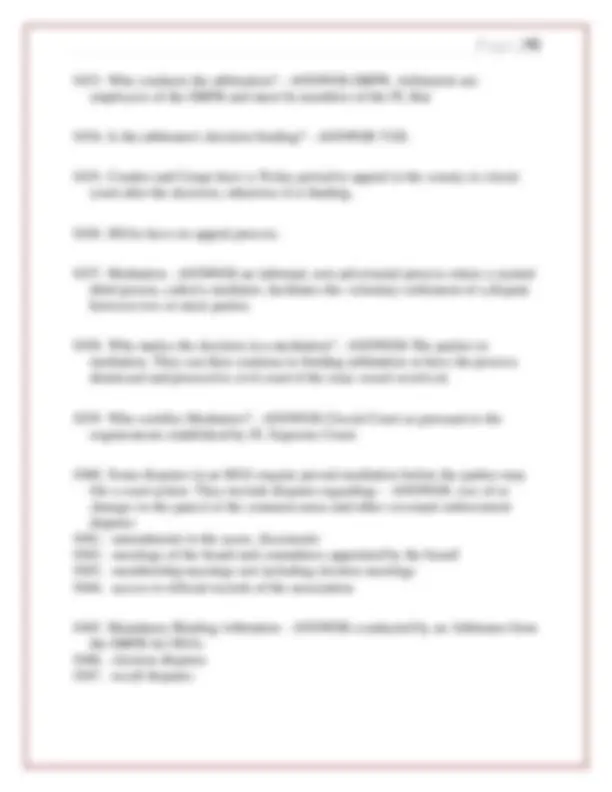
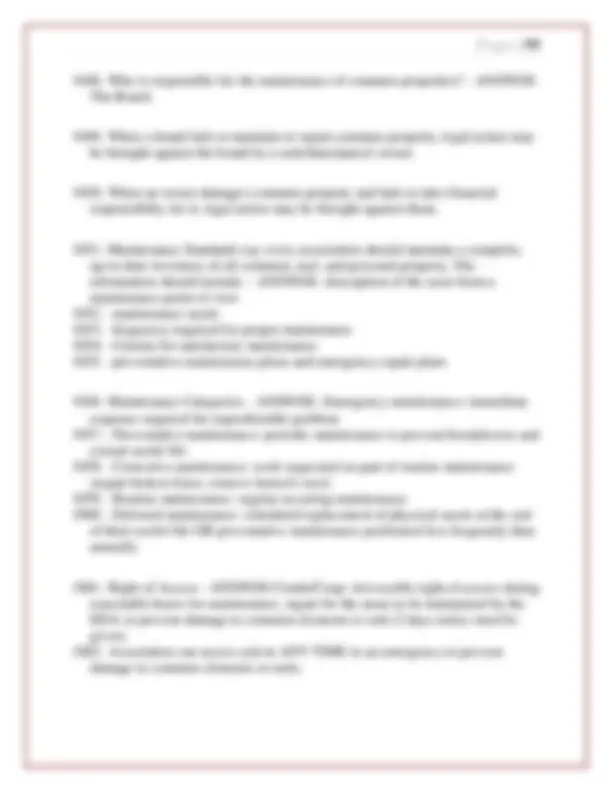
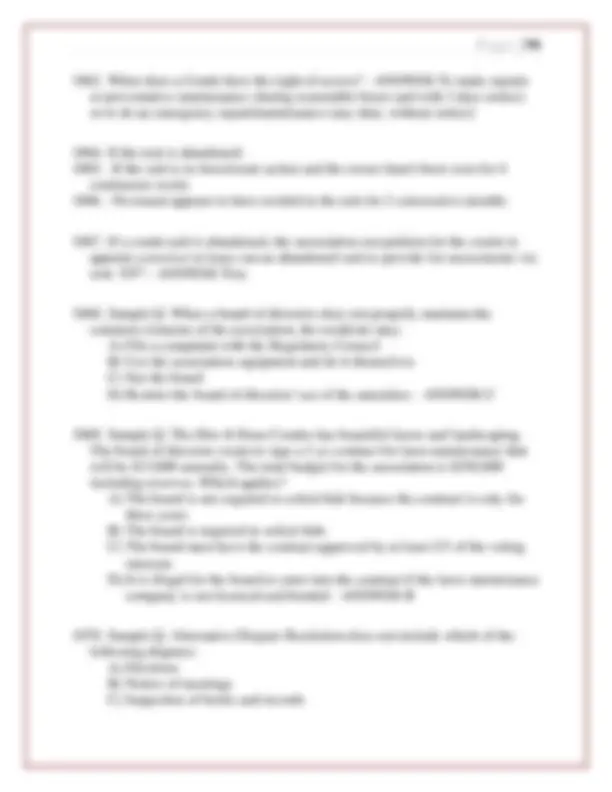



Study with the several resources on Docsity

Earn points by helping other students or get them with a premium plan


Prepare for your exams
Study with the several resources on Docsity

Earn points to download
Earn points by helping other students or get them with a premium plan
Community
Ask the community for help and clear up your study doubts
Discover the best universities in your country according to Docsity users
Free resources
Download our free guides on studying techniques, anxiety management strategies, and thesis advice from Docsity tutors
A comprehensive overview of key concepts and definitions related to florida community association management. It presents a series of questions and answers covering topics such as community association types, ownership structures, common elements, covenants, and governing documents. Designed to assist individuals preparing for the florida community association manager licensing exam in 2025.
Typology: Exams
1 / 95

This page cannot be seen from the preview
Don't miss anything!
























































































27.Limited Common Areas (definition) - ANSWER-those common areas which are reserved for the use of a certain cooperative unit or units to the exclusion of other units (ie. balcony, private elevator, patio connected to the unit, etc.) 28.Examples of Limited Common Areas - ANSWER-balcony, private elevator, patio connected to the unit, assigned parking space, storage unit, boat slip, etc. 29.Association Property (definition) - ANSWER-all real property within a community which is owned or leased by an association or dedicated for use or maintenance by the association or its members. 30.Short Version: property shared by all the owners in a homeowners' association (also referred to as common property or common area) 31.Examples of Association Property (common areas or common property) - ANSWER-Pool, clubhouse, streets, park, entrance feature, etc. 32.Who owns the paint, tile, and carpet in a condominium? - ANSWER-The homeowner. The homeowner owns the air space from the drywall and floor inwards. 33.Who owns the drywall and floor baseboards/concrete in a condominium? - ANSWER-EVERYONE. Every owner in the condo owns these common elements. 34.In a Cooperative, what deeds/certificates does an owner possess? - ANSWER- Their building deed (ie. mobile home deed), Shareholders Certificate (for proof they made capital contribution), and their Proprietary Lease (so they have the right to their specific space) 35.If someone lives in a cooperative community, but isn't a Shareholder, what deeds to they possess? - ANSWER-Their building deed (ie. mobile home deed), and a rental agreement with the cooperative so they RENT their space that their mobile home is on. Or they RENT the space their unit is in/on. 36.Voting Interest (definition) - ANSWER-An owner/member in an association.
37.What governing documents can be changed to allow associations to impose rules or regulations for the use of common elements/areas? - ANSWER-usually the Proprietary Lease or Bylaws 38.Who can adopt new rules and regulations? - ANSWER-The Board of Directors (AKA Board of Administration) 39.Any fee charged for the use of common areas (ie. pool passes or gate keys) must be approved by... - ANSWER-a majority vote of the members (or allowed for in the governing documents) 40."Big Vote" - ANSWER-majority vote of members 41."Little Vote" - ANSWER-majority vote of members present (quorum normally has to be met) 42.A vote is not required to assess fees for exclusive use of common elements/areas, such as... - ANSWER-rental of the clubhouse for a private party 43.Where is the term "unit" used? - ANSWER-Condominium 44.Where is the term "parcel" used? - ANSWER-Homeowners' Assoc. 45.Where is the term "share" used? - ANSWER-Cooperative 46.Appurtenance (definition) - ANSWER-additional rights or accessory rights (privileges) that go with the ownership of property in a community association and include: 47.-Undivided share in common elements and common surplus 48.-Exclusive rights to the common elements as provided in the declarations 49.-Exclusive easement for use of the airspace occupied by the unit as it exists at any particular time and as the unit may lawfully be altered or reconstructed from time to time 50.-Membership in the association designated in the declaration 51.-other appurtenances as provided in the declaration
62.If a resident pays the provider directly for services, can they be denied access to franchised, licensed, or certificated cable or video service providers? - ANSWER-No. They cannot opt out of bulk services, but they cannot be denied use of another service on their own contract. 63.Who is responsible for management of a residential community association? - ANSWER-Board of directors 64.Name three ways the board of directors may choose to manage the association.
A) A residential or commercial development whether a condominium, cooperative, or homeowners' association. B) A development where membership is mandatory and which is authorized to impose a fee on owners. C) A development where the owners may opt out of the membership prior to signing the contract for sale. D) A development that places the maintenance and operations functions solely on the developer. - ANSWER-B: A development where membership is mandatory and which is authorized to impose a fee on owners. 76.Sample Question: What is the property shared by the unit owners called in a condominium? A) Common areas B) Limited Common Elements C) Common elements D) Limited Common Property - ANSWER-C: Common Elements 77.Condo = Elements 78.Coop = Area 79.HOA = property 80.Sample Question: Purchasers of a condominium, their family, and guests, agree to all of the following except: A) To occupy and use the property in accordance with the documents B) To maintain their units as set forth in the covenants C) In the case of violations of the covenants, to submit to due process D) To waive their right to access any other cable television service except that provided by the association's bulk contract. - ANSWER-D: To waive their right to access any other cable television service except that provided by the association's bulk contract 81.Sample Question: Which of the following is not an appurtenance? A) Voting rights B) Membership in the corporation C) Golf course membership D) Exclusive easement for the use of the airspace occupied by the unit - ANSWER-C: Golf course membership.
88.Part VIII Chapter 468 is the statute requiring... (synopsis) - ANSWER-licensing of individuals and management companies 89.Section 468.432 (detailed definition): - ANSWER-A person shall not manage or hold herself or himself out to the public as being able to manage a community association in this state unless she or he is licensed by the department. 90.Section 468.431(2) states (detailed definition): - ANSWER-"Community association management" means any one of the following practices requiring substantial specialized knowledge, judgment, and managerial skill when done for remuneration and when the association or associations (cumulative) served contain more than 10 units or have an annual budget or budgets (cumulative) in excess of $100,000.00: 91.-controlling or disbursing funds of a community association 92.-preparing budgets or other financial documents 93.-assisting in the noticing or conduct of community association meetings 94.-determining the number of days required for statutory notices 95.-collecting amounts due to the association before filing of a civil action 96.-calculating the votes required for a quorum or to approve a proposition or amendment 97.-completing forms related to the mgmt of an association that have been created by statute or by a state agency 98.-drafting meeting notices and agendas 99.-calculating and preparing certificates of assessment and estoppel certificates
good faith; with care and full disclosure to the community association; accounting for all funds; and not charging unreasonable or excessive fees.
- ANSWER-F.A.C. determines the rules UNDER the broader spectrum of the Statutes. These are the "little" picture in that they are more detailed and concerned with how to abide by statutes.